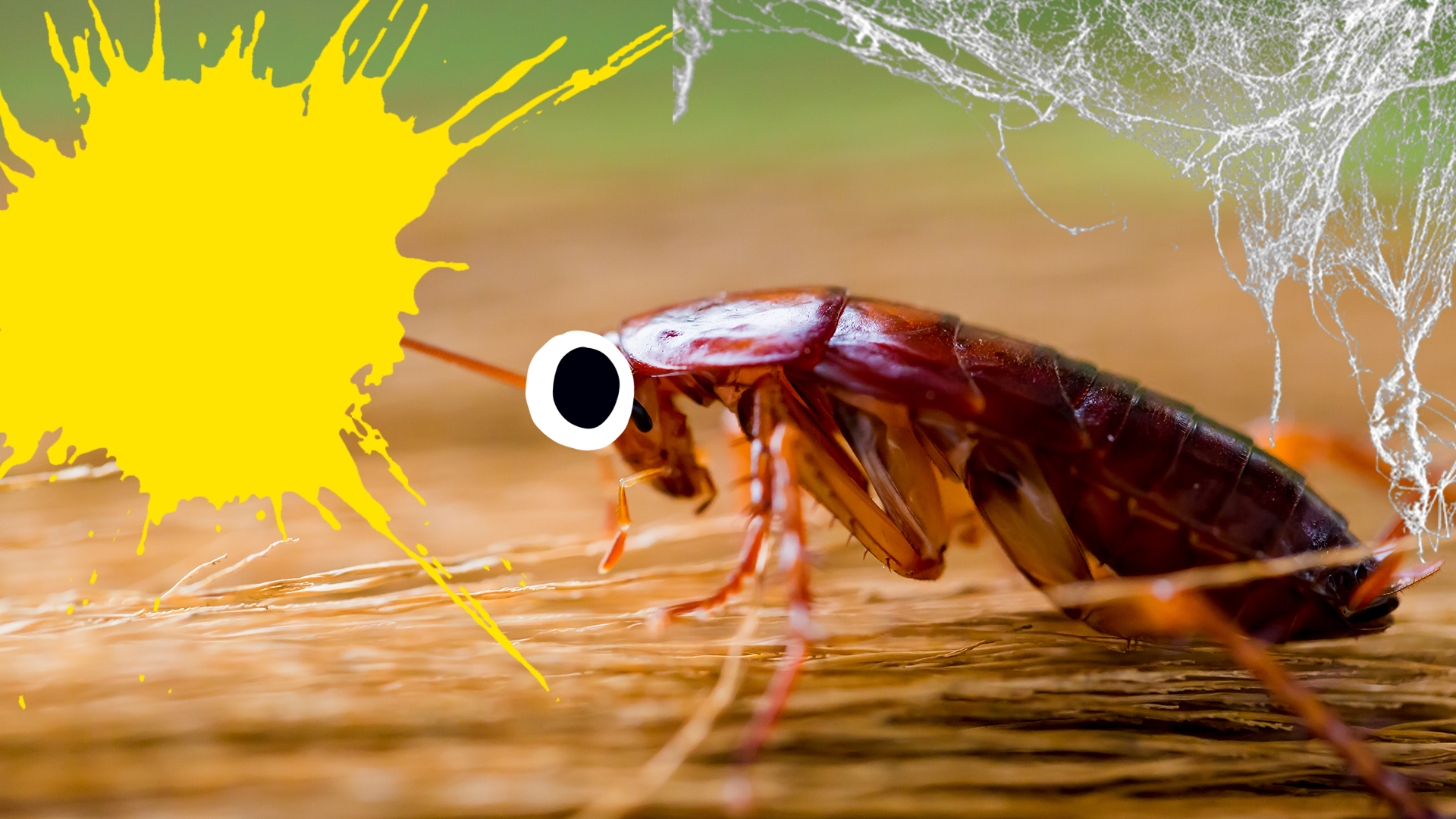The 50 Creepiest Scary Facts to Spook Your Friends In 2024!
These spooky facts will send a shiver up your spine! Check them out!
Spooky stuff, like scary movies or haunted house attractions or ghost trains, is extremely popular because it creates a sense of excitement in a safe setting. Waiting for a Halloween fright with your family or friends is one of the best things ever. Especially if you have some spooky snacks!
These scary facts are guaranteed to send a shiver up your spine, or at least give you a good old case of the heebie jeebies! They’ll make you turn all the lights on and carry a torch around at all times! Use them to scare your friends and frighten your family!
Once you’ve bravely read and remembered every single one of these spooky facts, why don’t you have a laugh at our dead funny Halloween jokes? Or test your Halloween trivia in this bumper, terrifying quiz? What about a Halloween picture quiz?
If you’re a Halloween fan, we’ve got something for everyone. Even werewolves and vampires!
1. Your bed is full of millions of bugs
Research has shown that your bed is home to up to 10 million dust mites. Dust mites are microscopic creatures that thrive in warm places and feed on dead skin cells. That’s why you need to wash your bedding regularly and say cheerio to bed bugs!

2. A public toilet seat is cleaner than a smartphone
Public toilets are cleaned regularly and scientists have discovered there is more bacteria on the phone or tablet you may be holding in your hands right now! If this makes you feel queasy, remember you can give your device a little wipe down every day!

3. There’s such a thing as zombie ants
These are ants which have been infected and controlled by parasitic fungi called Ophiocordyceps and behave as though they have no control over their little ant bodies due to a fungus that grows inside its body and brain. It is not known whether these ants say ‘braaaaaaains’, but we think it is safe to say they don’t.
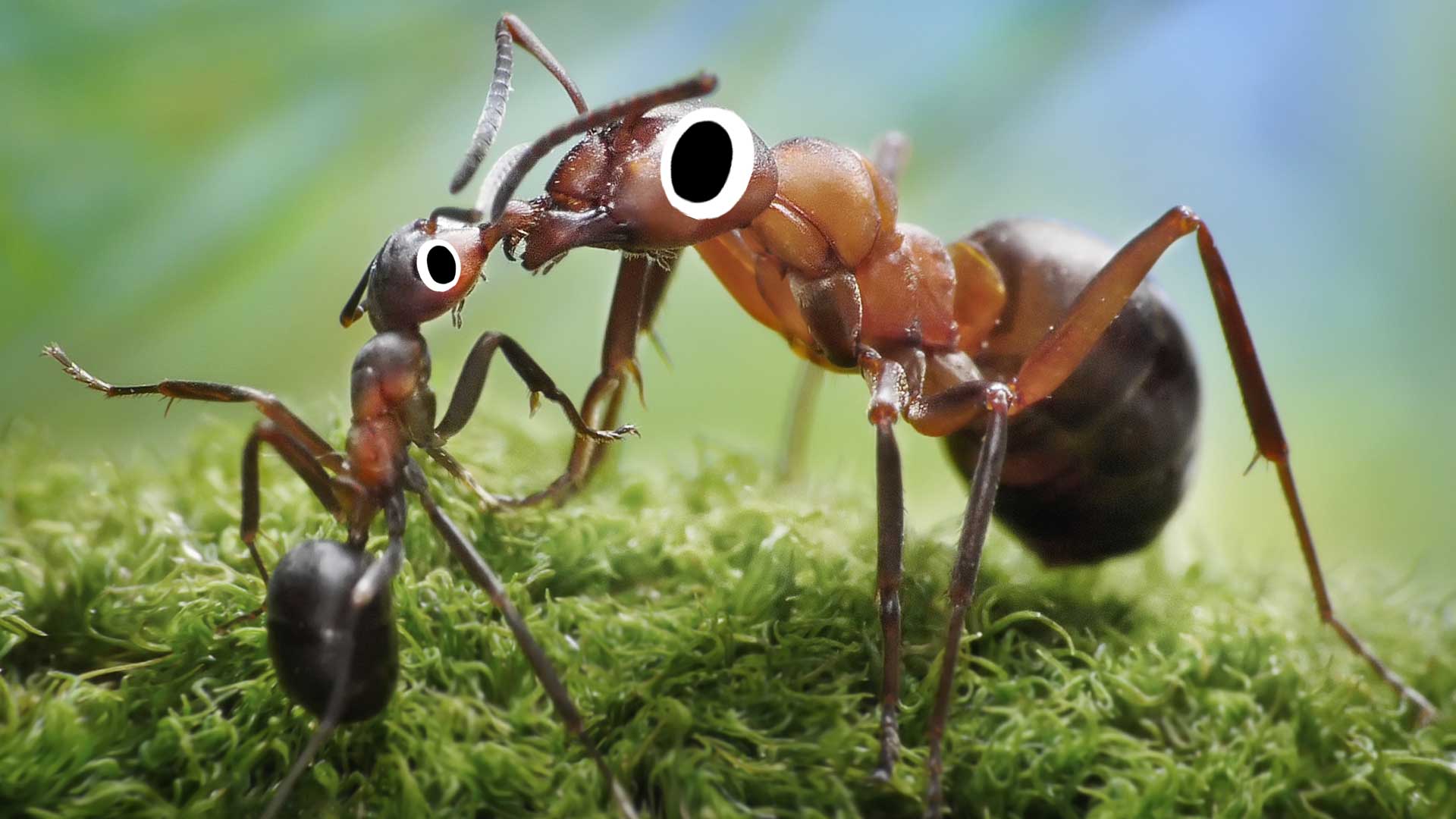
4. Some groups of rats get their tails tangled up and become a ‘Rat King’
This is a rare occurrence when a group of rats become bound together via their tails. Sometimes they become knotted together naturally or joined by sticky dirt. The term comes from a German folk tale known as ‘Rattenkönig’ and was linked with poor sanitation and general muck.
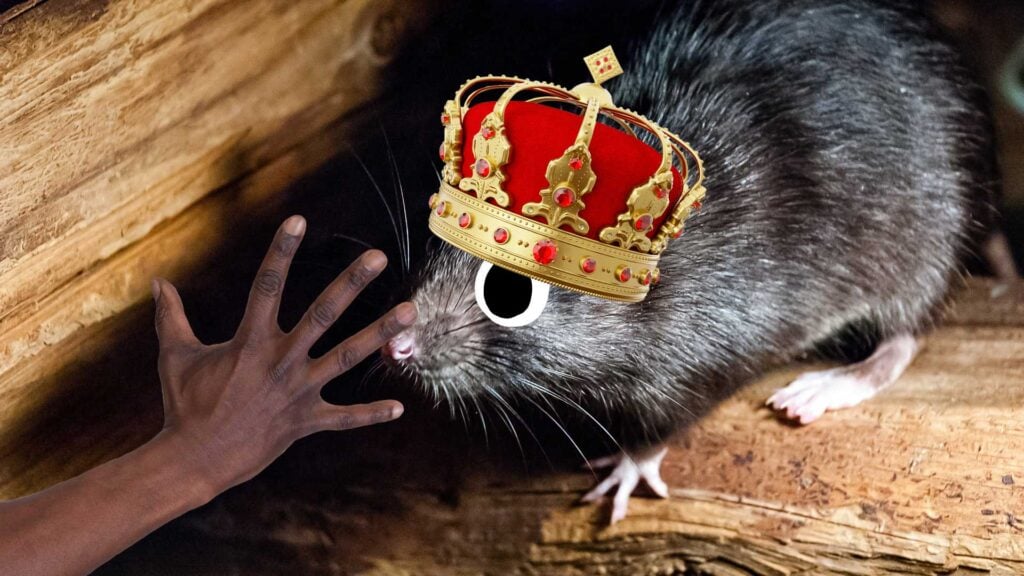
5. If you fall into a black hole, you MIGHT be turned into spaghetti
Falling into a black hole could be best described as “getting into a bit of a pickle” and we’ll spare you the details of what would happen. But some scientists call it ‘spaghettification’ and it has absolutely nothing to do with bolognese sauce.

6. The human brain named itself
The brain is the GOAT when it comes to thinking about stuff, speaking and general consciousness. It’s literally so brainy, it gave itself a name just like that person at school who gives themselves a nickname. Maybe ‘brain’ is a nickname? We’ll never know.
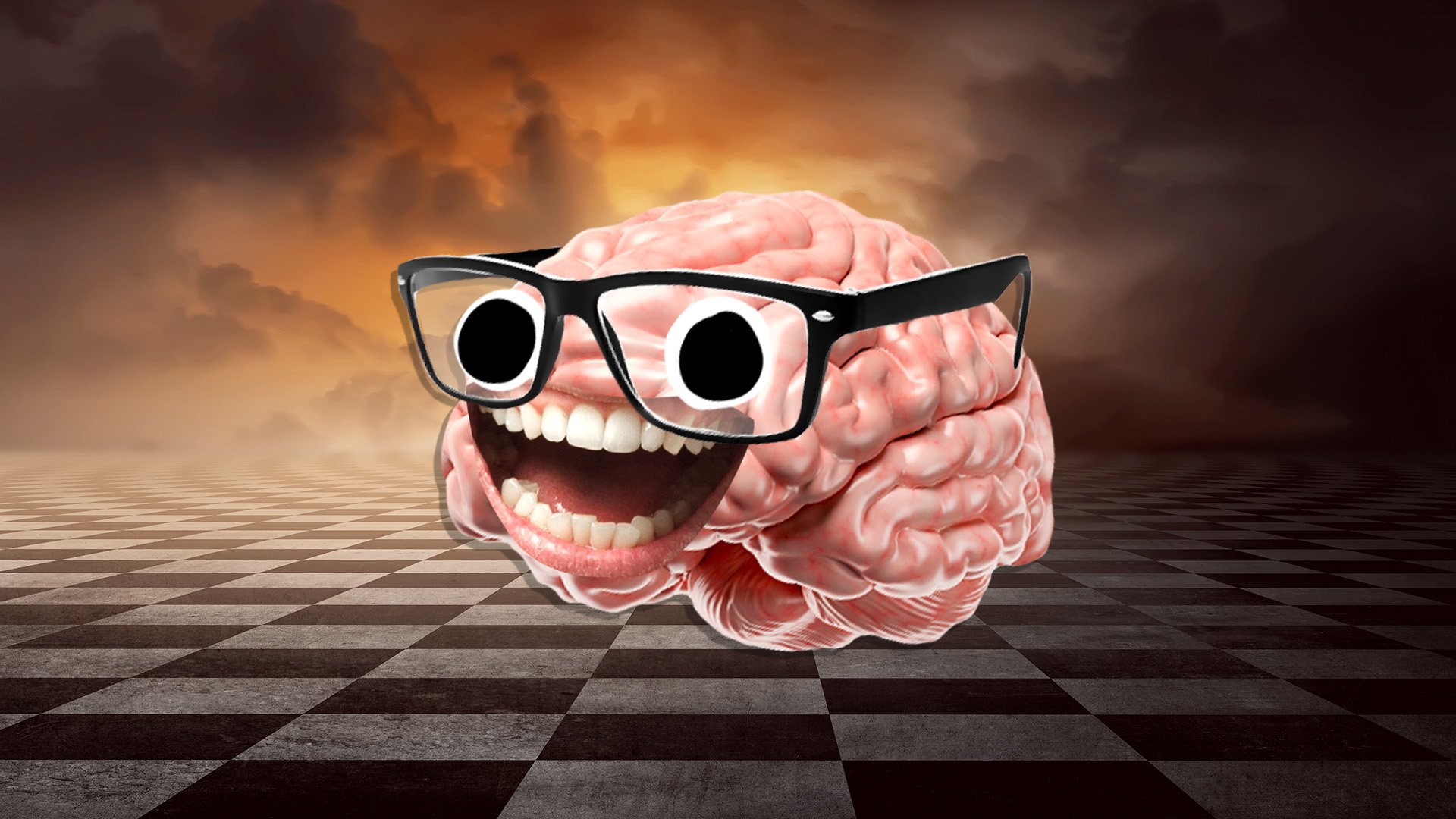
7. Dogs love squeaky toys for a grisly reason
If you or a friend have a pet dog, then you’ll know that they go bananas for any toy which makes a noise. It’s not because it’s fun and a bit annoying, but dog experts say it taps into their primal response when they’ve caught a smaller animal. Aww.

8. Apollo 11 had barely any fuel left when it landed on the moon
When Apollo 11’s lunar module – named Eagle – landed on the Moon on July 20, 1969, it had very little fuel left. Neil Armstrong (who was the first human on the moon) took control of the module in order to find a safe landing spot and it’s estimated that there was about 25 seconds worth of fuel left in the tank. Imagine being trapped in space!
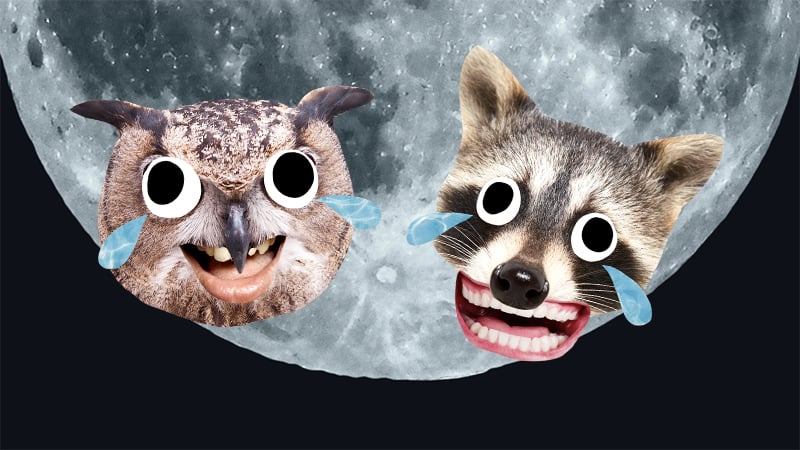
9. This fact about smells will make you feel sick
If you can smell something bad or really bad, that’s because particles of whatever is causing the nasty whiff have made their way into your nose and have stuck to the sides! Gross!
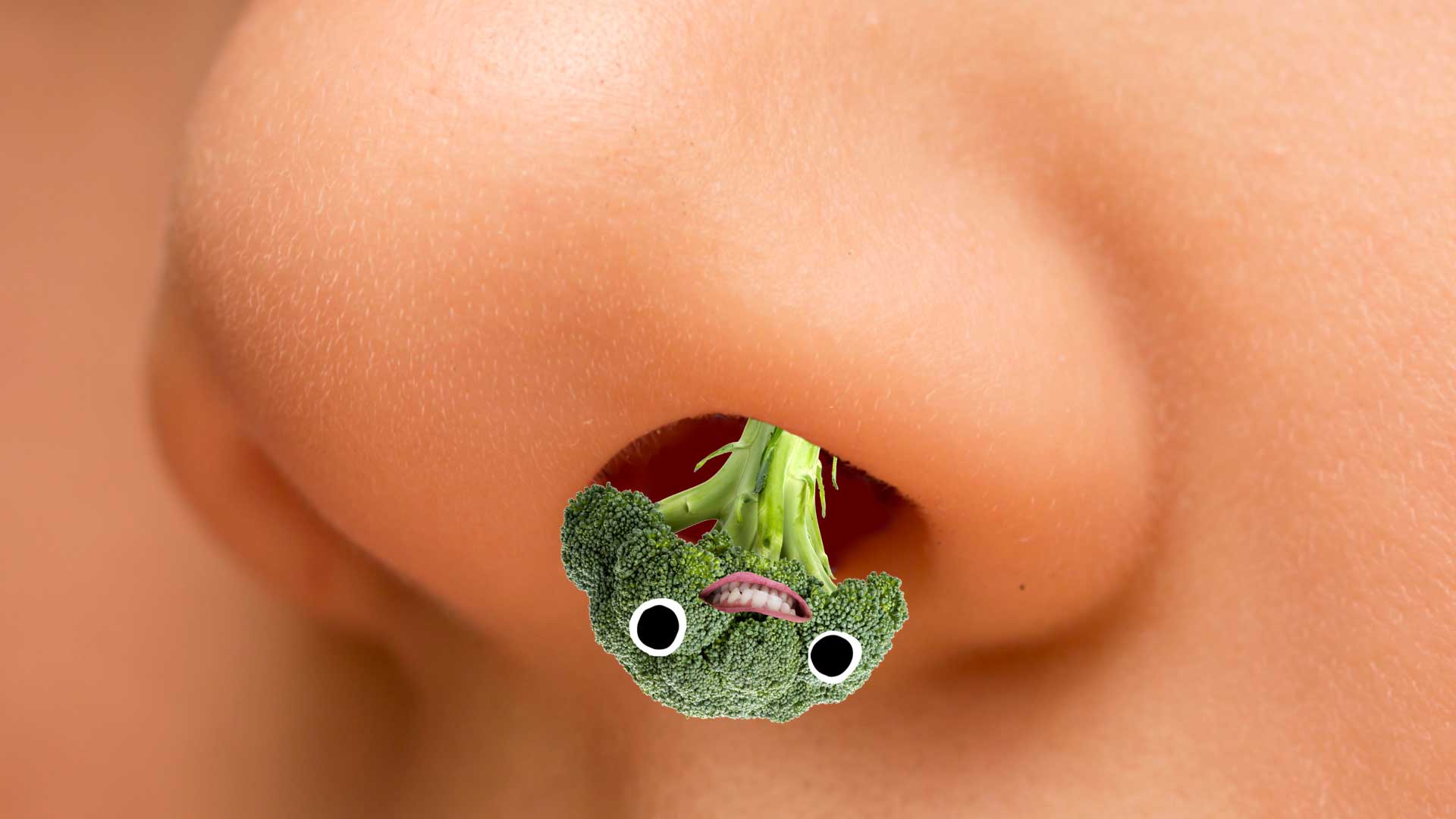
10. Butterflies can drink blood
It’s true that some types of butterflies have been know to take a dainty sip of the red stuff, but it’s nothing to do with being delicate vampires. It’s because of a process called mud-puddling, where they find moisture and attempt to extract any vital nutrients. You might find them on dung, pools of wee or even tears, as well.

11. Romans used crushed bones to clean their teeth
Believe it or not, Romans were pretty advanced when it came to keeping their teeth as clean as possible. Some people say that they used crushed mouse brains but that has been debunked and instead, they used crushed bones and powdered charcoal flavoured with mint as a rudimentary toothpaste.

12. Earwax is a kind of sweat
Everyone – including celebrities – have to clean out their ears to get rid of the wax that builds up. It’s made by two glands in the ear canal, which are similar to sweat glands. One is called the ceruminous gland which makes the waxy bit, while sebaceous glands make an oily substance called ‘sebum’. Which is funny.
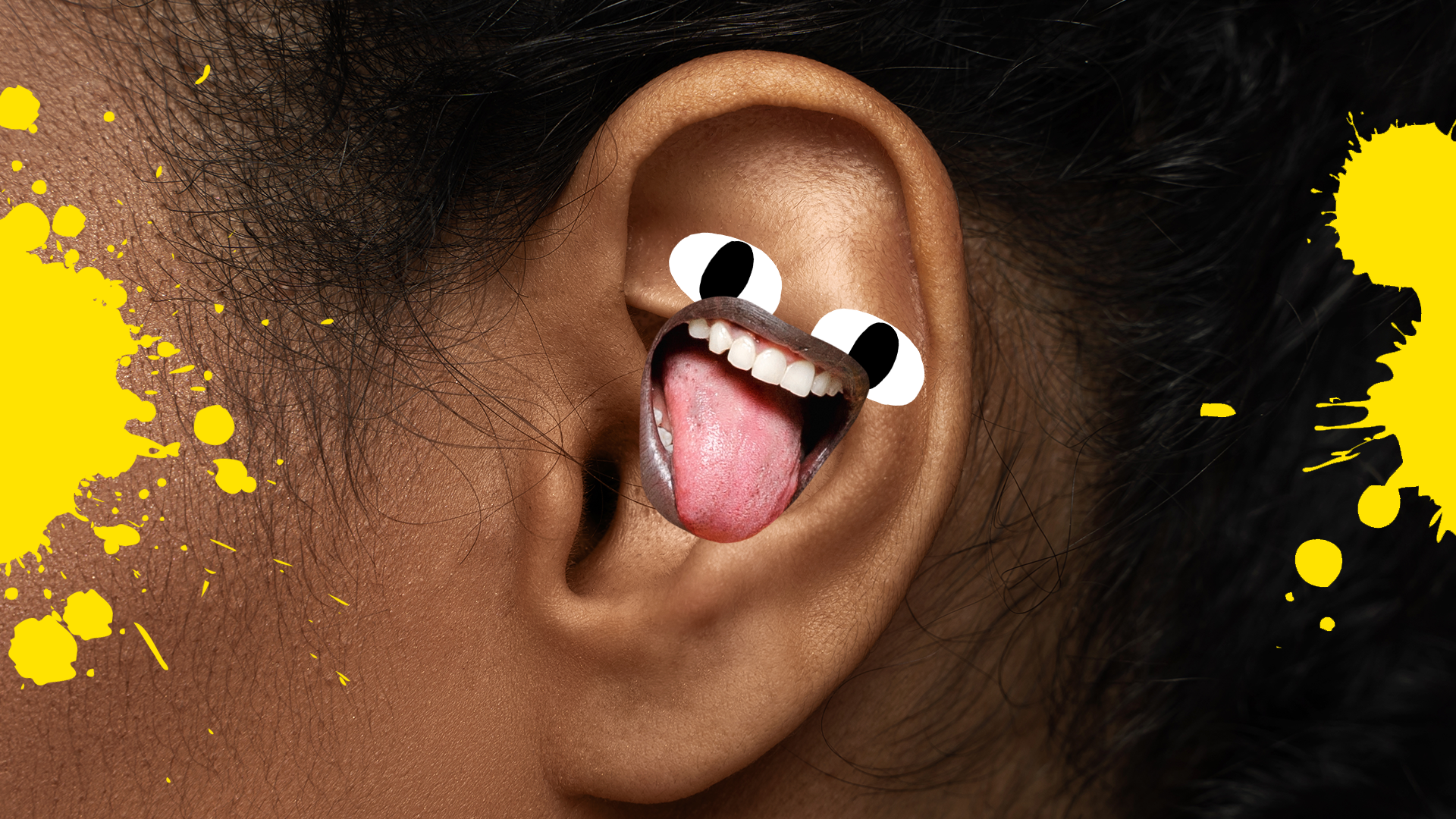
13. Spider blood is blue
Their blood is this colour because it has a coppery molecule called hemocyanin. When it mixes with oxygen, it turns blue! Spiders are a bit creepy, but this fact really puts them in the Premier League of Creepy Facts.
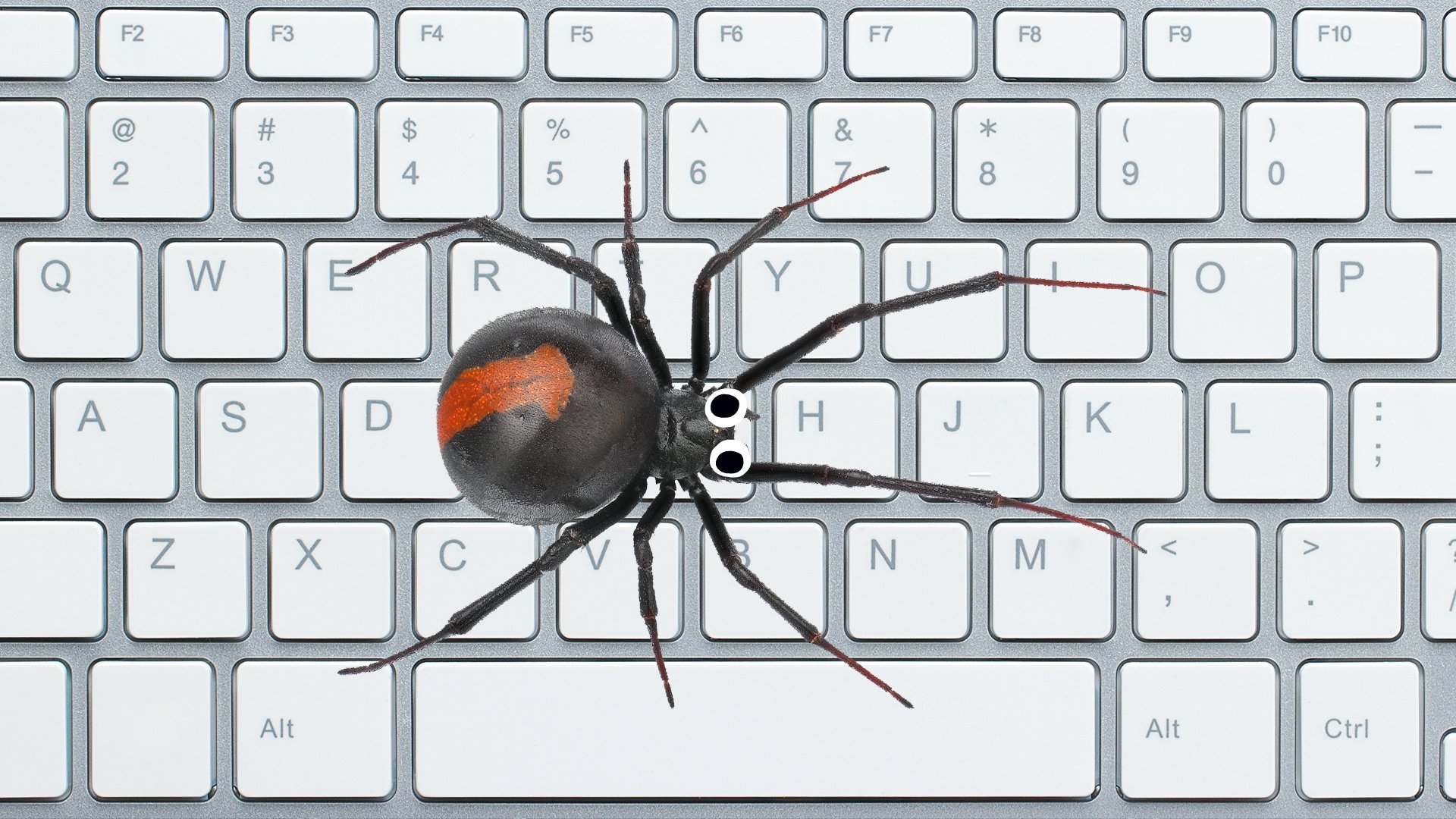
14. There’s a fish that has human-like teeth
There’s a type of fish called Pacu which is found in South America. They don’t have rows of pointy teeth like their cousins the piranha, but have squarish teeth that look like ours! Very weird. They’ll be growing eyebrows next.
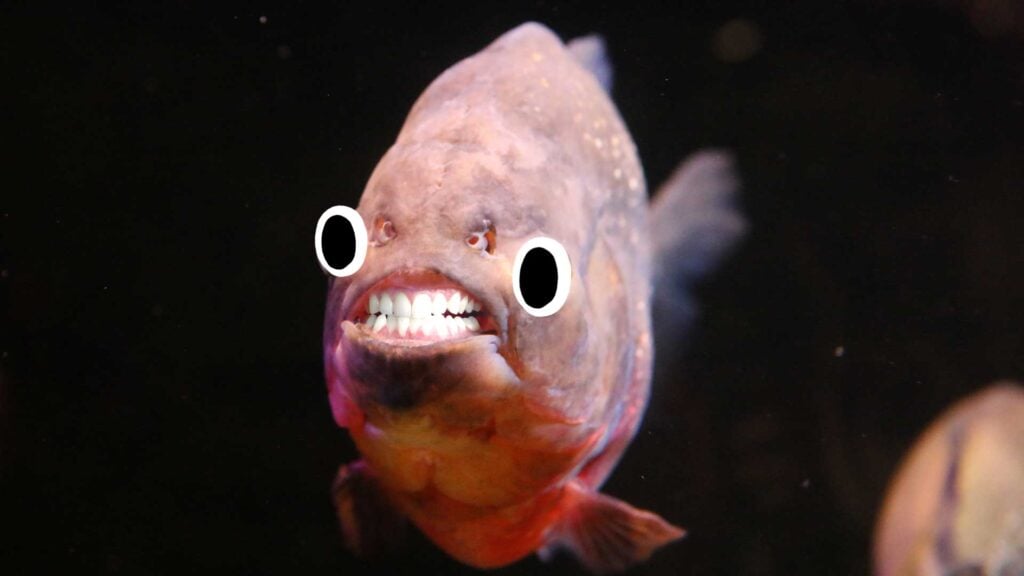
15. While in the womb, babies have moustaches
When babies are developing in the womb, they grow fine layer of hair called lanugo and can look a bit like a moustache. This hair is simply to keep the baby warm and is not grown to look fancy. Sadly, the hair falls away before birth and parents don’t get the chance to see what they’d look like with a twirly ‘tache.

16. Around 95% of the Earth’s oceans is a complete mystery to humans
Scientists and oceanographers say that only 5% of the world’s waters have been explored and documented, so there could be literally anything swimming around in the rest of the seas. Absolutely anything.

17. If the sun exploded, you wouldn’t know for a little while
Scientists have calculated that it would take around 8 minutes and 23 seconds for humans to realise what has happened, as the sun its 93 million miles from Earth. They also reckon that the force of the explosion would be like billions of nuclear bombs going off at once.
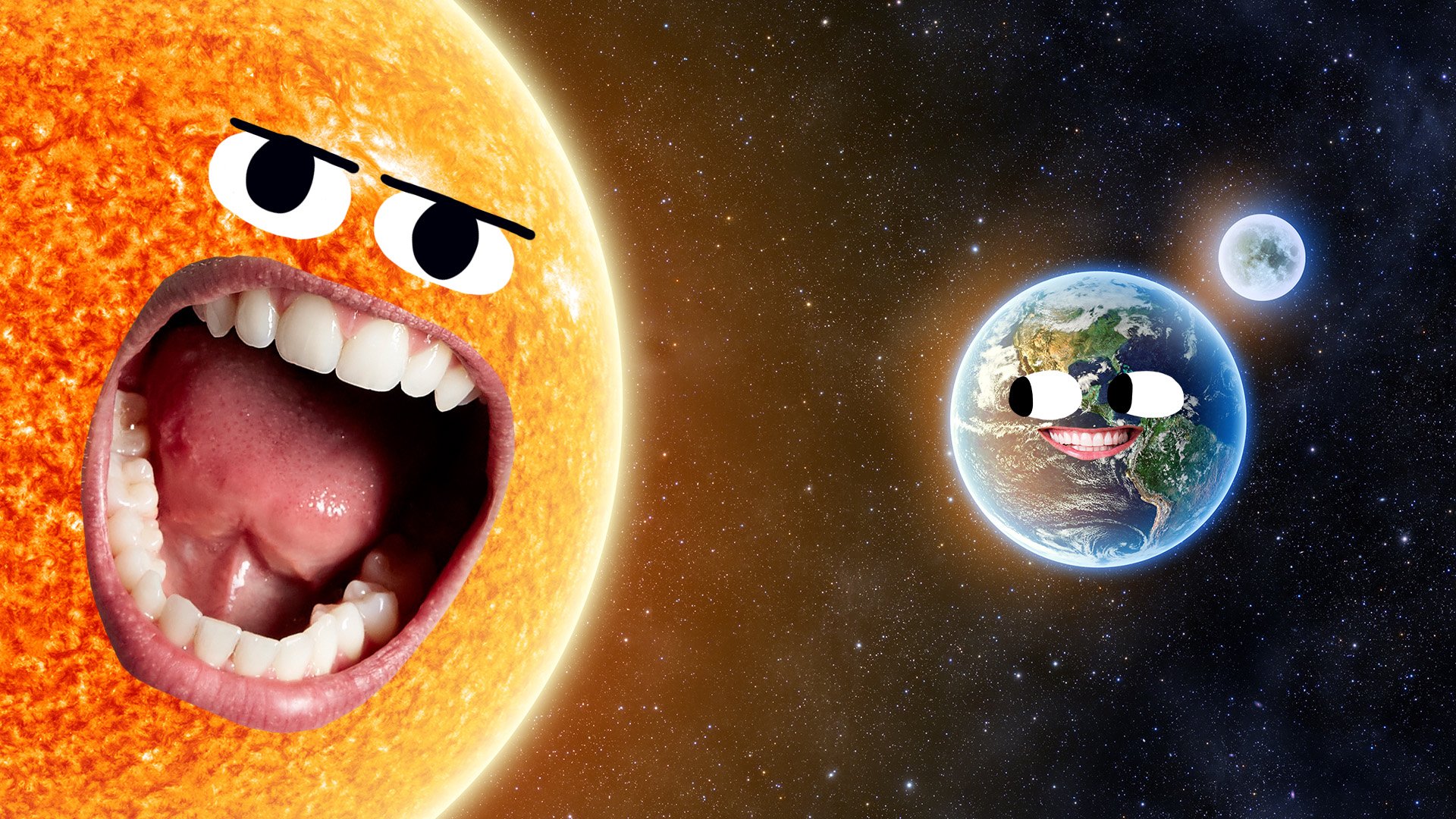
18. The human body contains MILES of blood vessels
If you took all the blood vessels (including arteries, veins and capillaries) would stretch out over 100,000 miles long.

19. There are dinosaur relatives walking about at your local farm
In 2003 scientists used collagen in ancient dinosaur remains to figure this out. They had suspected the dino-ness of birds for a long time, and finally here was actual evidence. Before this discovery, many experts believed that dinosaurs were giant reptiles, but it turns out they were basically massive chickens. A thought that makes Jurassic Park a little less scary… or maybe even more scary?
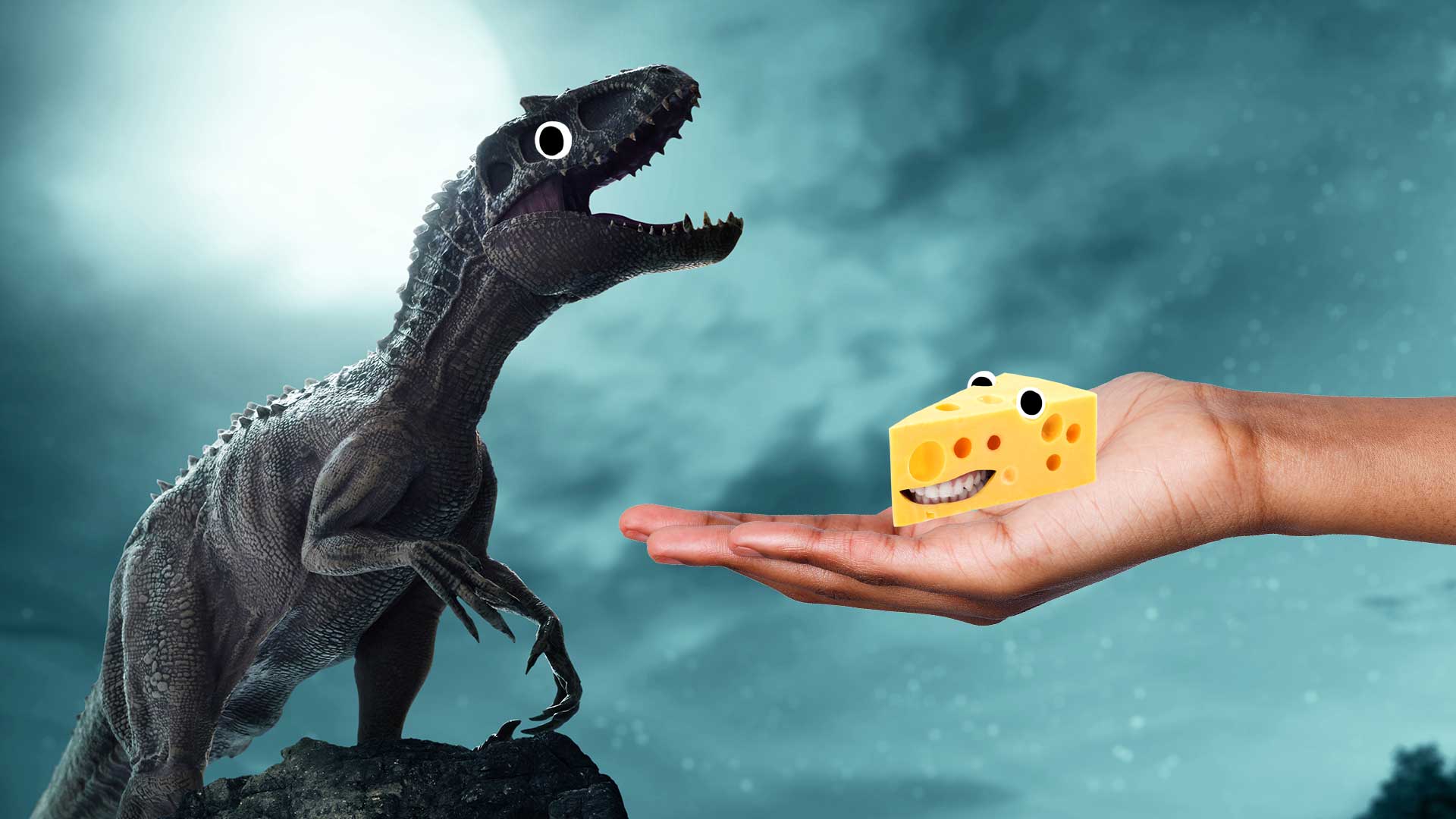
20. Space is VERY cold
If you’re planning a trip to space, you’d best pack some warm jumpers and mittens. Space is freezing cold – that’s minus 270.45 degrees Celsius, or minus 453.8 degrees Fahrenheit – and scientists say it will get even colder over time!

21. Crows can remember your face
An important 2011 study revealed crows can remember the human faces of those who capture them. According to another important study, ravens – including crows, jays and magpies – can hold a grudge for up to 24 months. So make sure you don’t upset birds in general, because they might just plan their revenge!
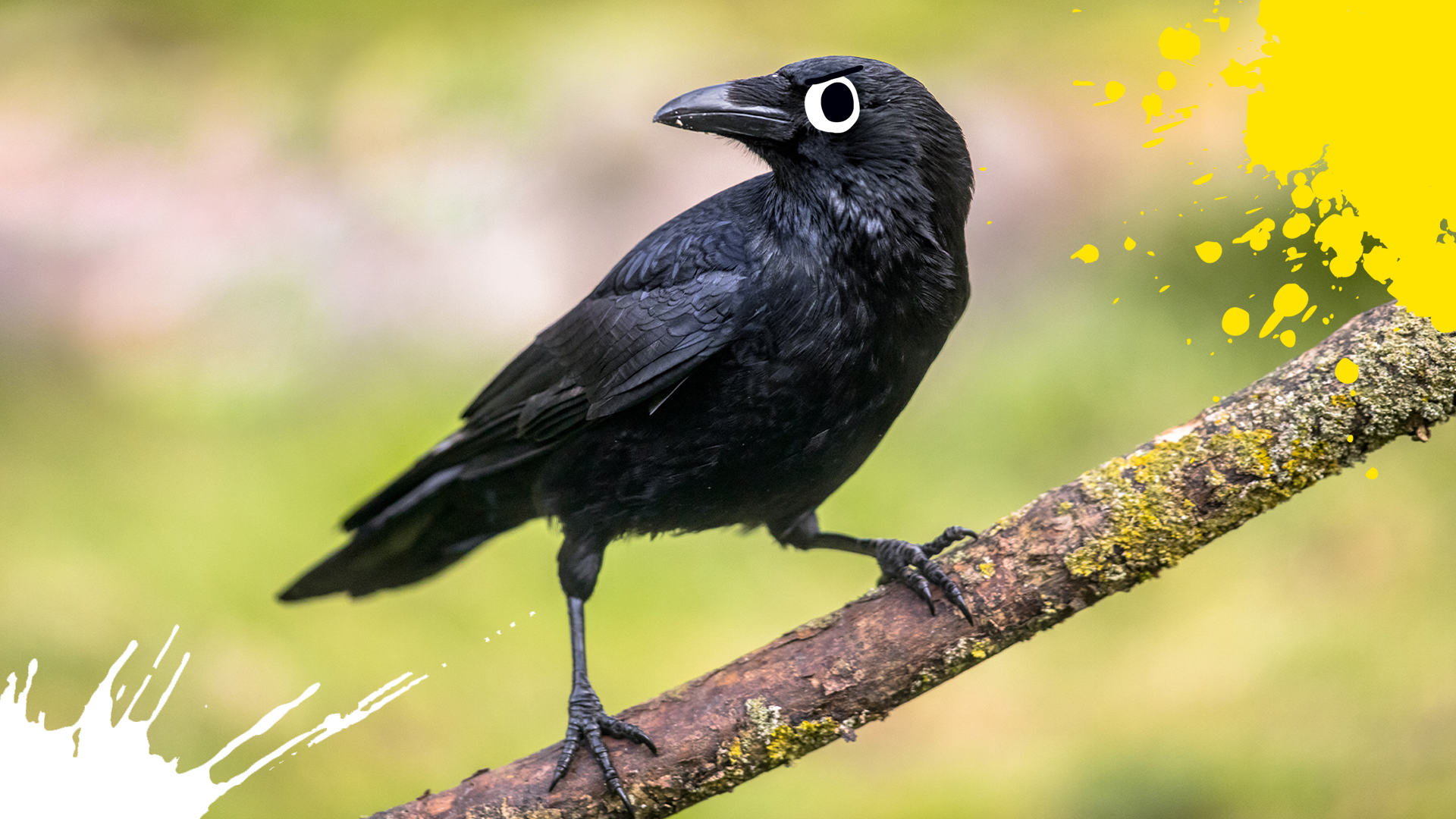
22. You lose bones when you grow older
You have over 200 bones in your body – 213, actually. But did you know that you actually had 300 bones when you were a baby? The reason? As you develop, your bones, which are quite soft when you’re born, fuse together to make bigger bones, mostly in your skull. Some of these baby bones are also not really bones at all, but cartilage.
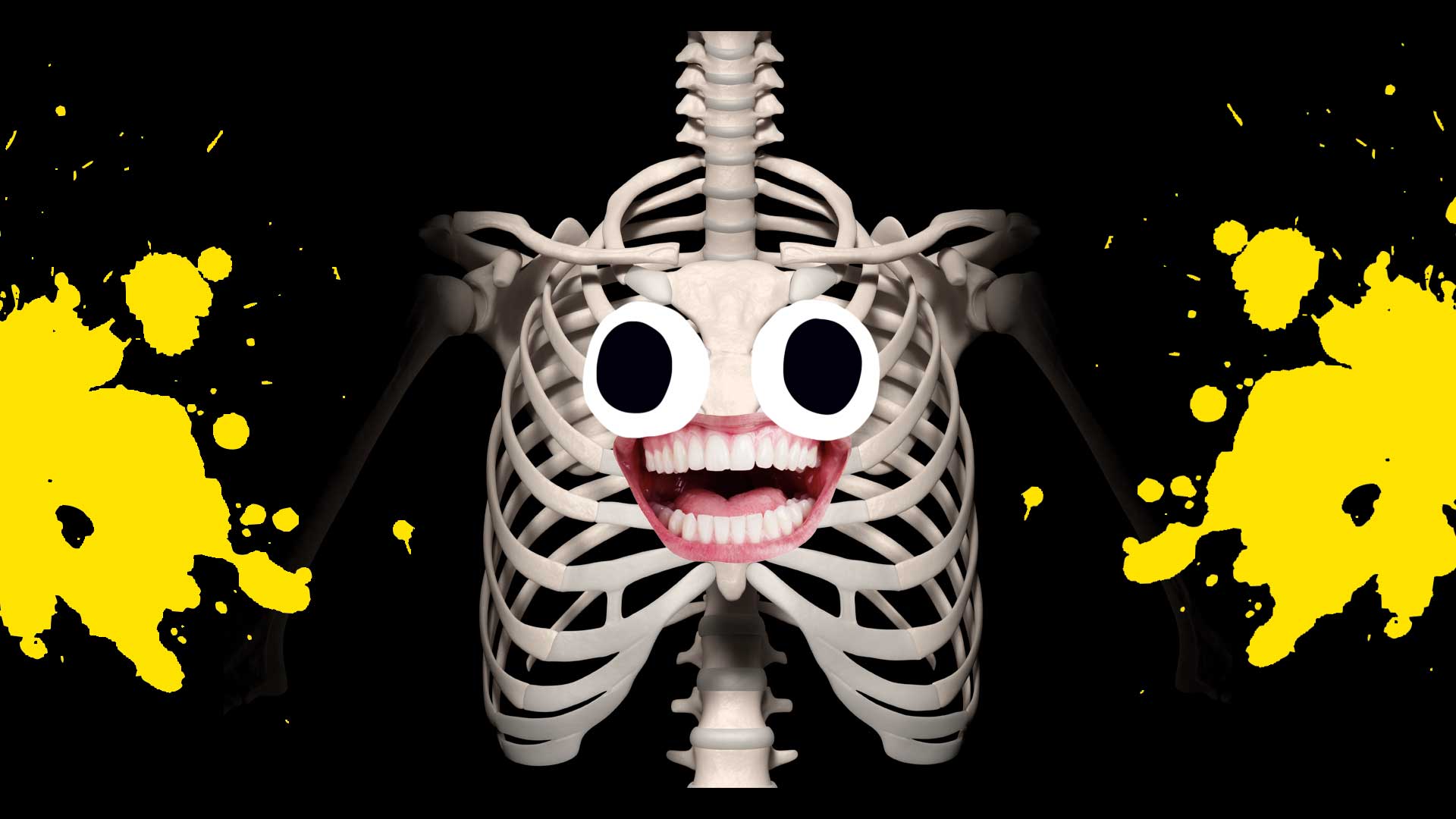
23. Pineapples eat humans
Well, sort of. This isn’t the sort of thing you’d see in a fruit-based horror film. Far from it. But pineapples contain an enzyme called bromelain, which can break down protein, which technically means it breaks down humans when you eat it. But you’d have to eat a lot of the stuff to begin even feeling a little irritation, but the time it goes to your stomach, the acids take care of its digestion. Human stomachs 1, Pineapple 0!
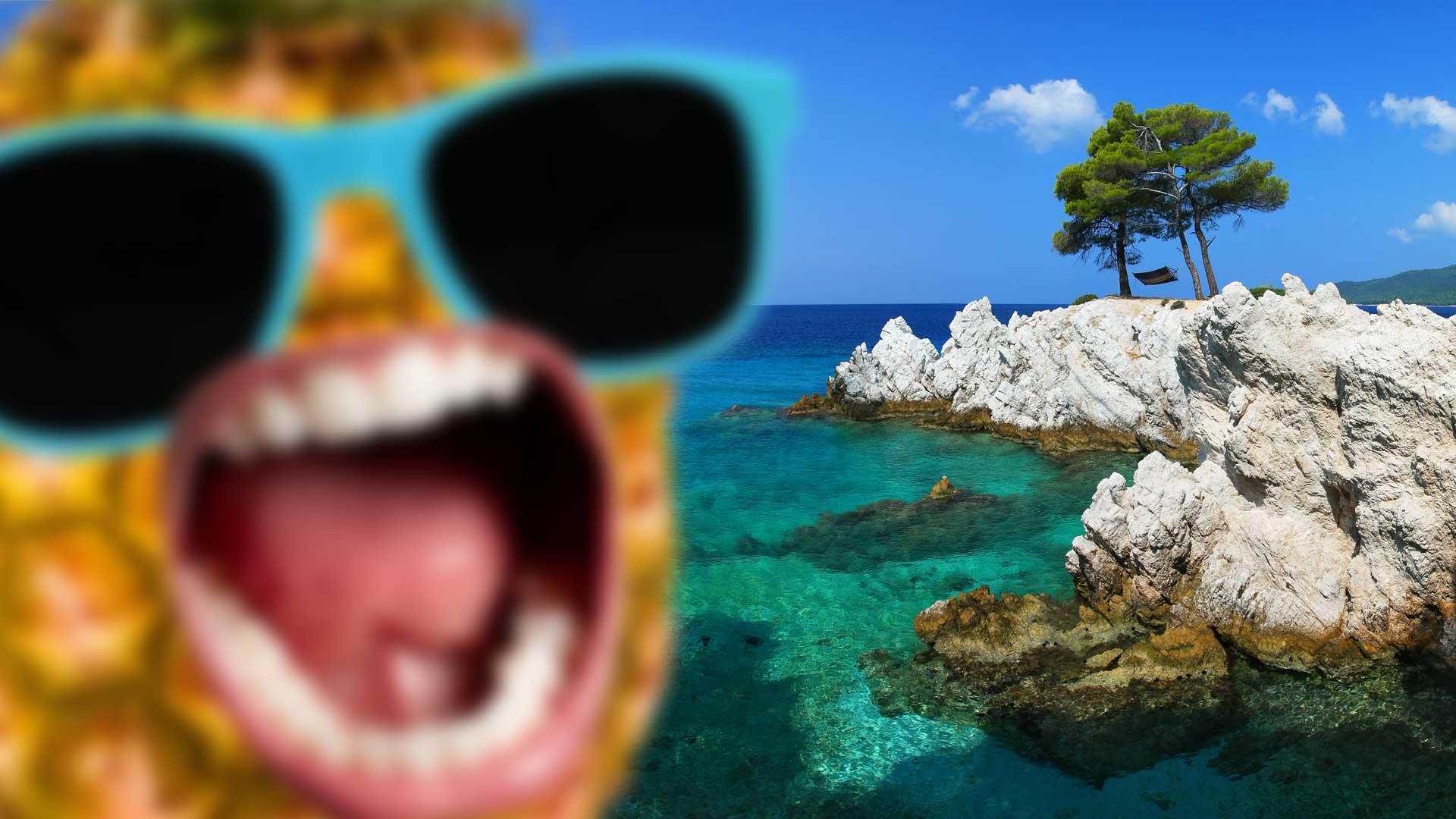
24. Your eyelashes are full of bugs
Your eyelashes contain tiny parasitic mites which can be seen under a microscopes. They’re called Demodex mites and don’t cause any harm. But knowing they’re there is enough to rub your eyes, which you’re probably doing right now!
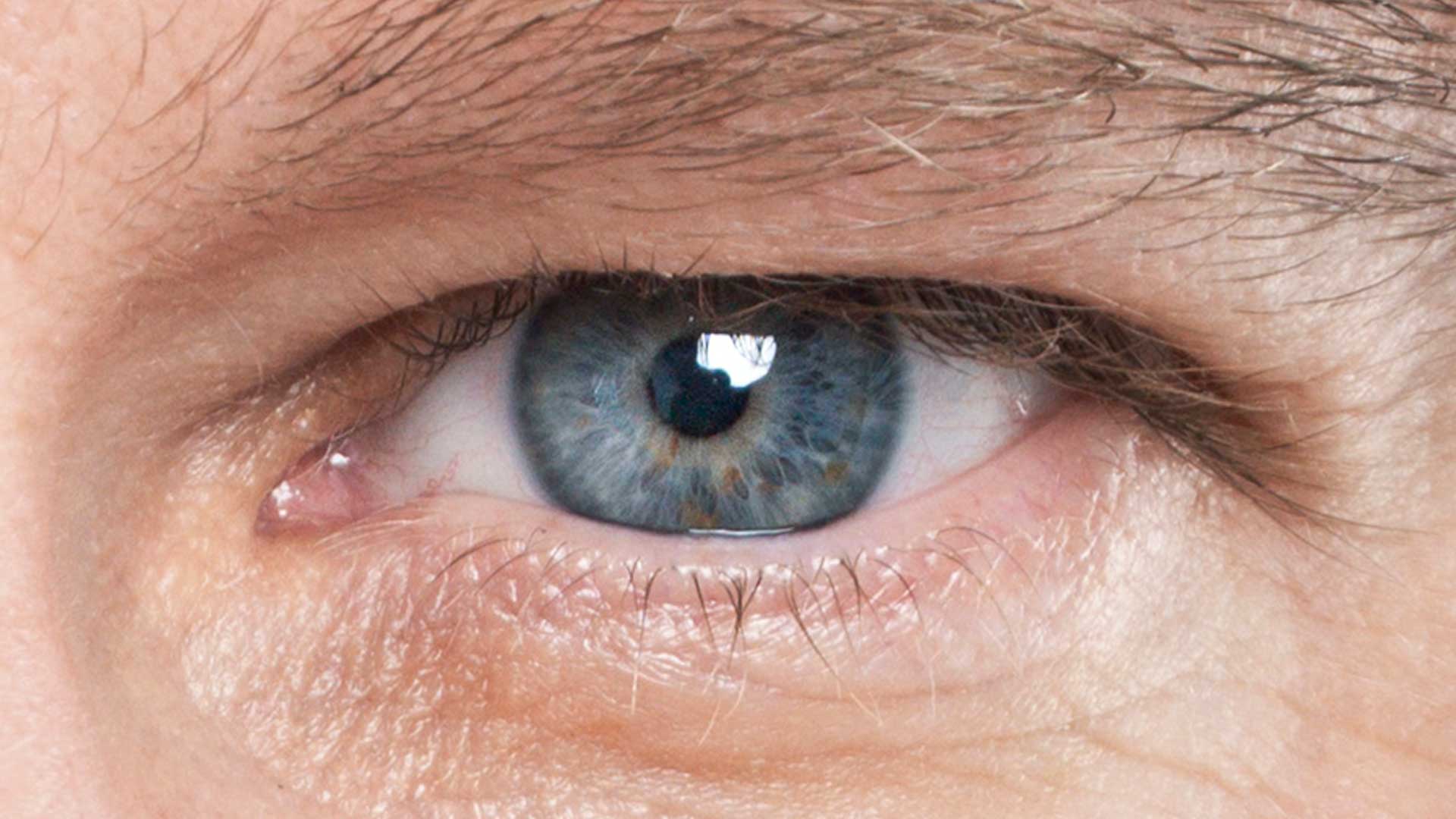
25. Humans shed 40lbs of skin during their lifetime
A person loses almost five billion skin cells every 24 hours. It all mounts up – literally, if you don’t vacuum your home – and over the average lifespan, this weighs around the same as a leg or five Maltese dogs.

26. There’s a jellyfish which lives forever
The Turritopsis dohrnii is also known as the immortal jellyfish is about the size of your little finger nail. It is known to reverse its life cycle and instead of dying, becomes a blob for around 36 hours and – it’s really complicated to explain – begins to become a jellyfish again. This isn’t to say it can’t be eaten by sharks and turtles, but left alone, it can live forever!
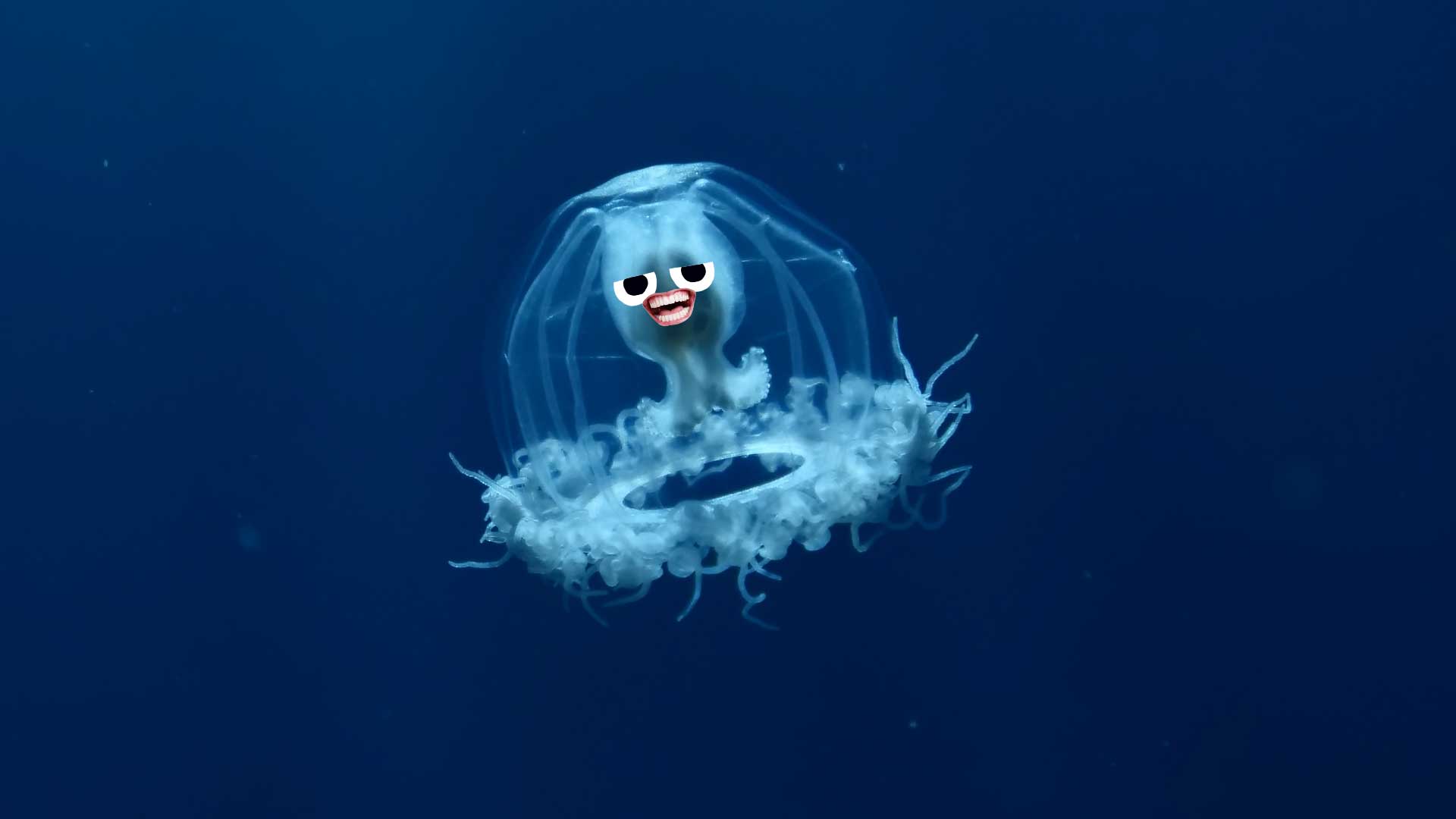
27. A Christmas tree can grow inside the human body
Russian doctors discovered a 5cm fir tree inside the chest of a 28-year-old called Artyom during surgery to remove a tumour. Experts say he have breathed in a seed and it grew inside his lung.
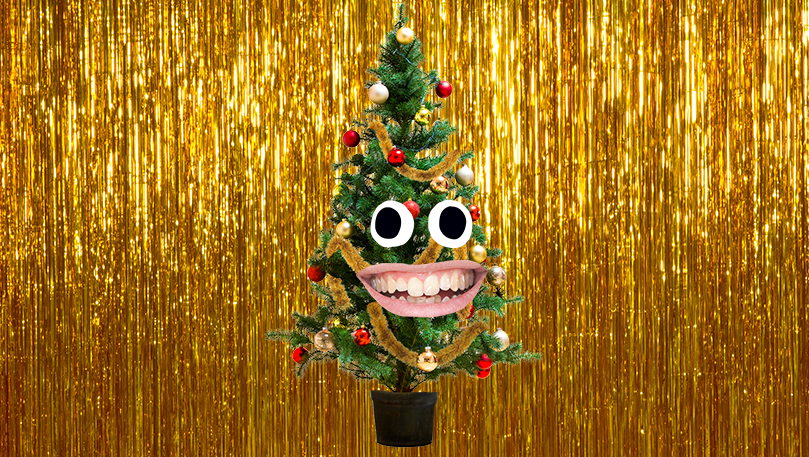
28. A chicken lived for 18 months without a head
In 1945, a chicken named Mike survived a family’s clumsy desire for a poultry-based dinner. The family fed the headless bird milk and water using a pipette, and bits of grain and worms. The bird became a celebrity and lived for almost two years.

29. There’s a haunted radio station in Russia
There’s a radio station somewhere in Russia nicknamed ‘The Buzzer’ that has been broadcasting cryptic codes since 1982. No-one knows for sure where it is based or who is behind the odd transmissions.
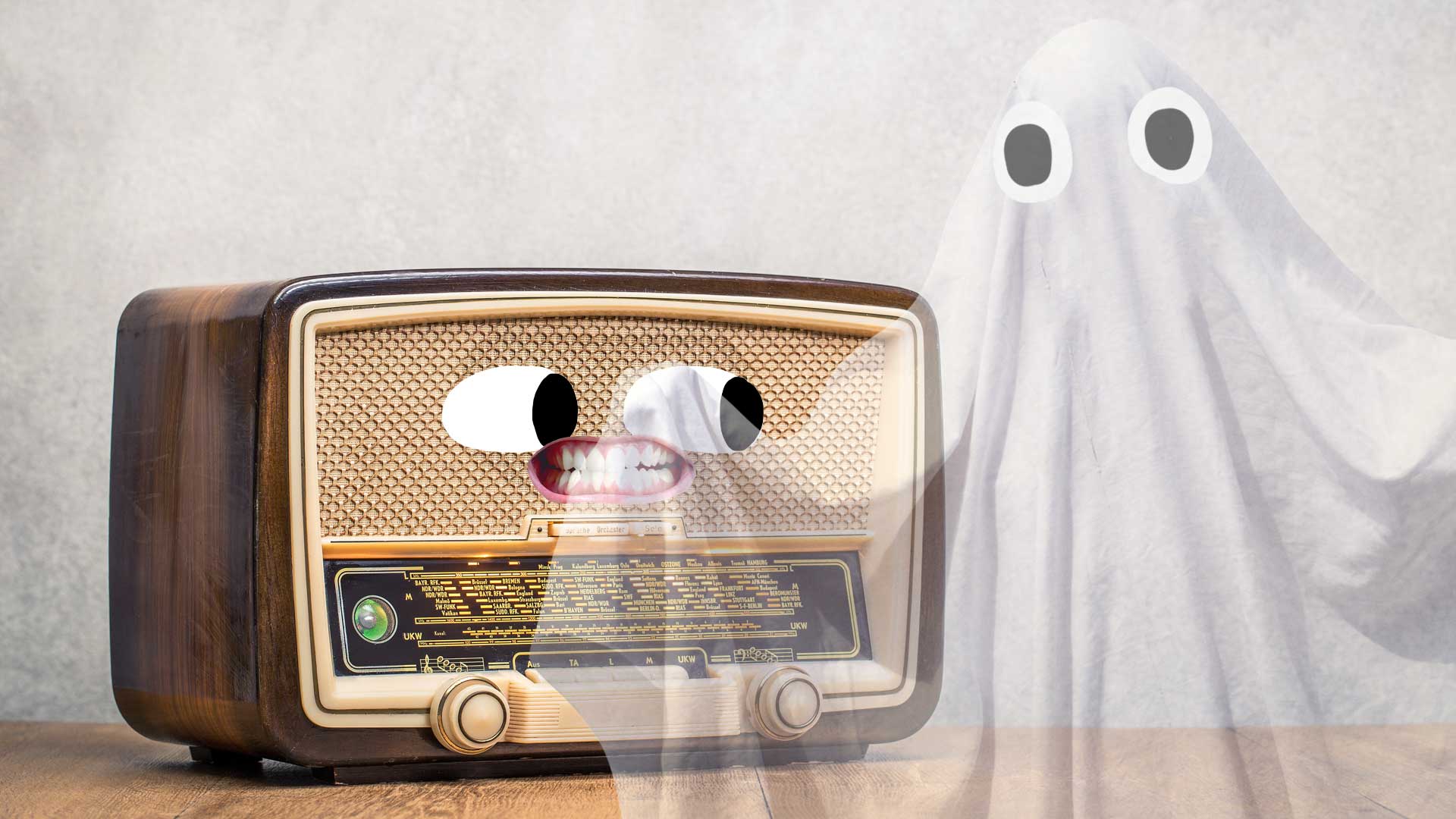
30. A caterpillar will digest themselves to turn into a butterfly
Sounds creepy, but here’s what actually happens – when a caterpillar goes into its cocoon, it’s broken down by enzymes. The genetic code it needs to become a butterfly is still there in the form of imaginal discs, and, using energy from the caterpillar goo, it becomes a butterfly! Gross.
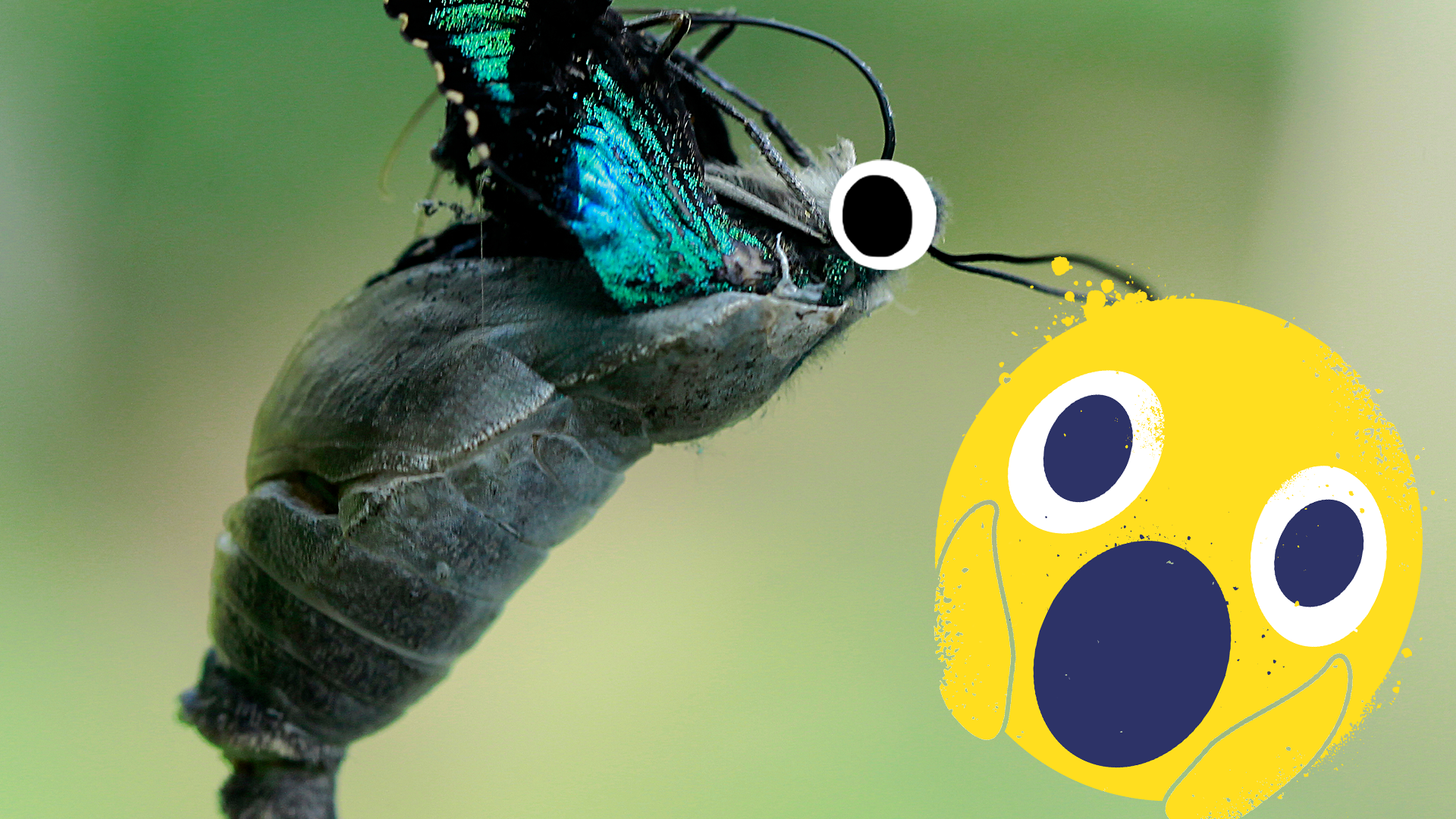
31. There is an ancient book full of strange symbols no one can translate
It’s called the Voynich Manuscript and it’s full of strange symbols, drawings and letters. The drawings depict women, men and what looks like plants, but it’s not clear what they’re doing. The writing looks like a words, but it’s not in any recognisable language. Some people think it’s a text book for midwifes, or a recipe book. Others think it’s a spell book, and some think it’s a hoax! For years people have tried to figure out what it says, but no one has!

32. In 1872 a ship was discovered floating in the ocean with no signs of its crew or passengers!
It was called the Mary Celeste and when people stepped aboard they found no one there, and no sign of a struggle either. The ship was in good condition with no signs of damage except a bit of water at the bottom. What happened to the passengers on board? Where did they go? Over the years people have put forward lots of theories including: pirates, sea monsters and even alien abduction! But it’s never been solved. What do you think?

33. The Tower of London is haunted by lots of ghosts
The tower of London is nearly a thousand years old, and it’s had plenty of time to build up a big roster of spooks! Spectral guests include the ghost of Anne Boleyn, wife of Henry VIII, Lady Jane Grey, the nine days queen, and even a ghostly bear! There’s been lots of grisly happenings in the tower, including murder, torture, beheadings and more, so it’s no wonder these ghosts feel like hanging around! It also used to have a zoo, which explains the bear! Have you ever seen one of these spectres?
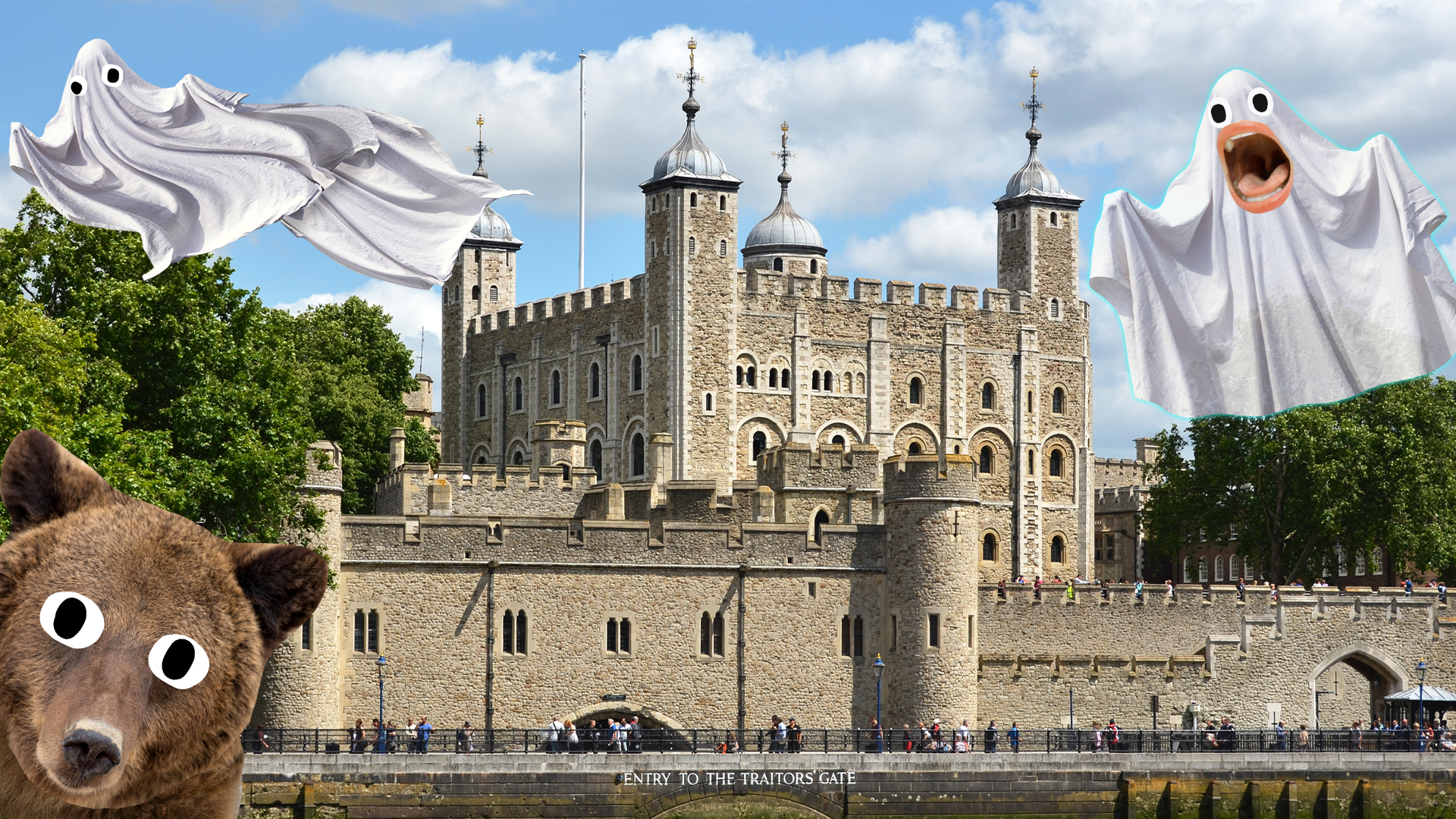
34. A dead Pope was once put on trial
Yup, you read that right! In 897AD, Pope Formosus was put on trial for perjury and other crimes. The weird thing? He’d been dead for a year! He was dug up and taken to court for questioning, though we can’t imagine he had a lot of answers…and sure enough, he didn’t say anything when questioned. The Pope who ordered the whole thing may possible not have been all that stable…we can’t imagine why anyone would think that!
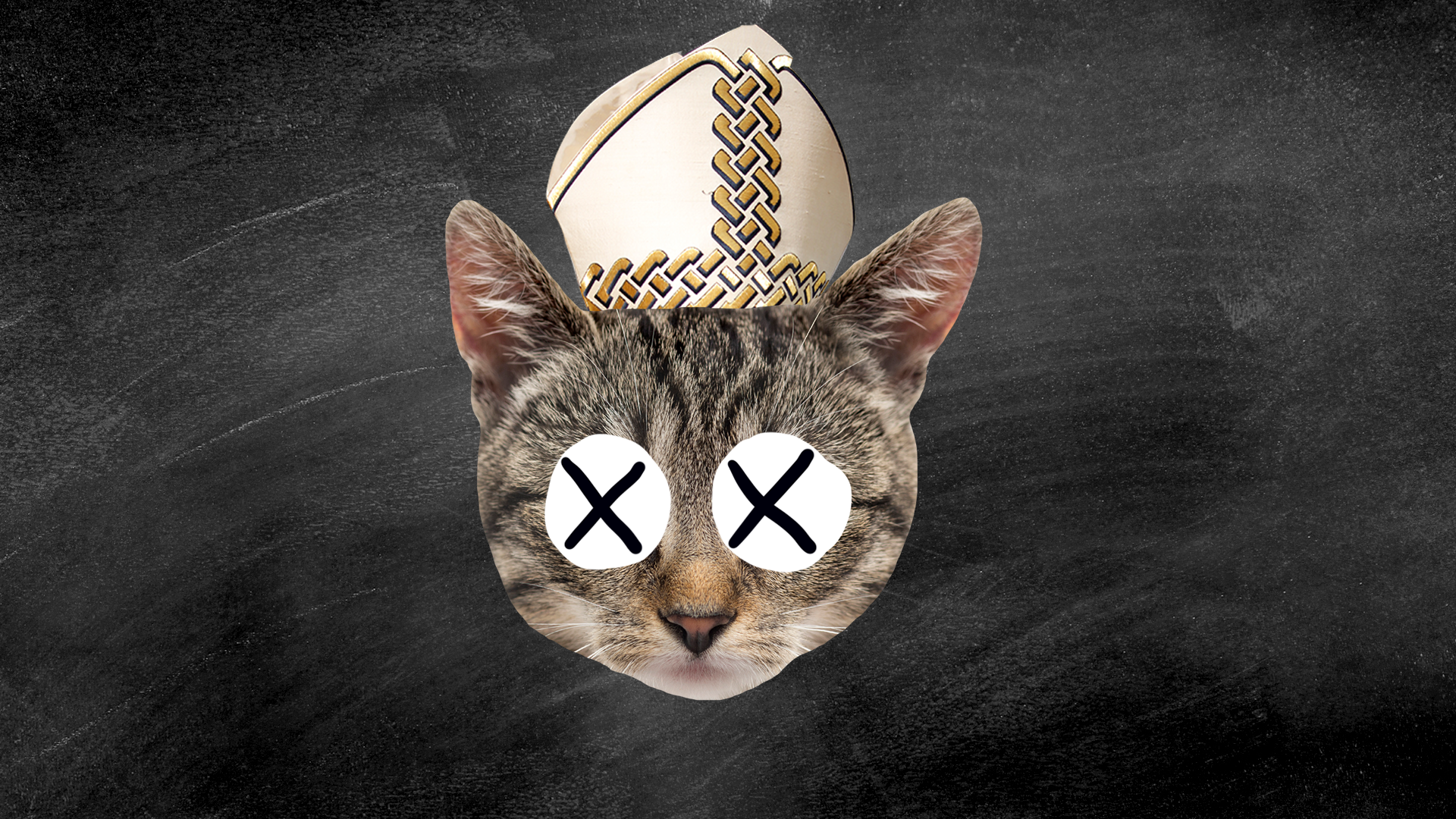
35. A dead councillor still attends University College London’s meetings
Jeremy Bentham, an 18th century philosopher, scholar and one of the founders of UCL, died in 1832. But that didn’t stop him continuing to attend council meetings – his skeleton can now be found in the halls of UCL, dressed up in his clothes and stuffed with straw, and has been in attendance at UCL council meetings on at least one recorded occasion, in 2013. In the meeting notes he is recorded as ‘Present, but not voting’. Bet you feel bad when you call in sick to school now!

36. The Golden Poison Dart Frog is so poisonous it can kill you with one touch
They may look cute, but their skin is deadly! In fact, it’s one of the most poisonous animals on earth. Because the frogs are so small and delicate they’re vulnerable to predators, so that’s why their skin is so poisonous. While only the size of a paperclip, this little froggy, which lives in South America, contains enough poison to kill up to 20 people! Scientists aren’t sure how the poison is made, but some think it may be absorbed from plants eaten by the frog.
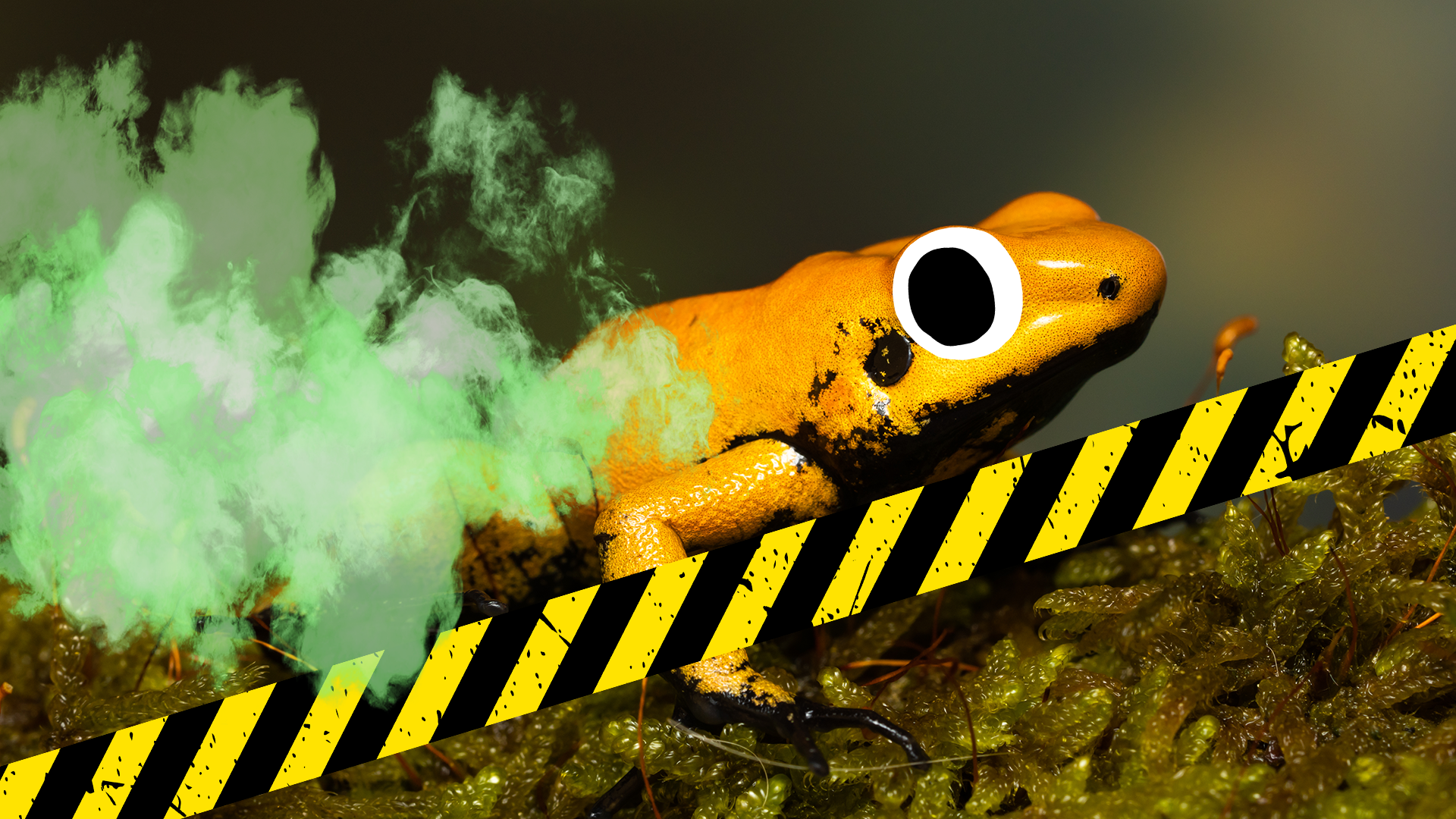
37. Horned Lizards squirt blood from their eyes
Yuck! This weird act is a way to freak out predators. The horned lizard lives in hot, desert areas, and is preyed on by large mammals like Coyotes. Luckily, they have a defence mechanism which is very effective! Although they are very good at camouflage, if that fails and they are attacked, the horned lizard will squirt a stream of foul tasting blood from their eye at their enemy, scaring them away. The blood comes from a sac under its eye, and can be squirted up to 2 metres away! They can also puff up to escape the jaws of predators. Luckily they don’t really squirt blood at humans, so you’ll probably be fine if you ever meet one.
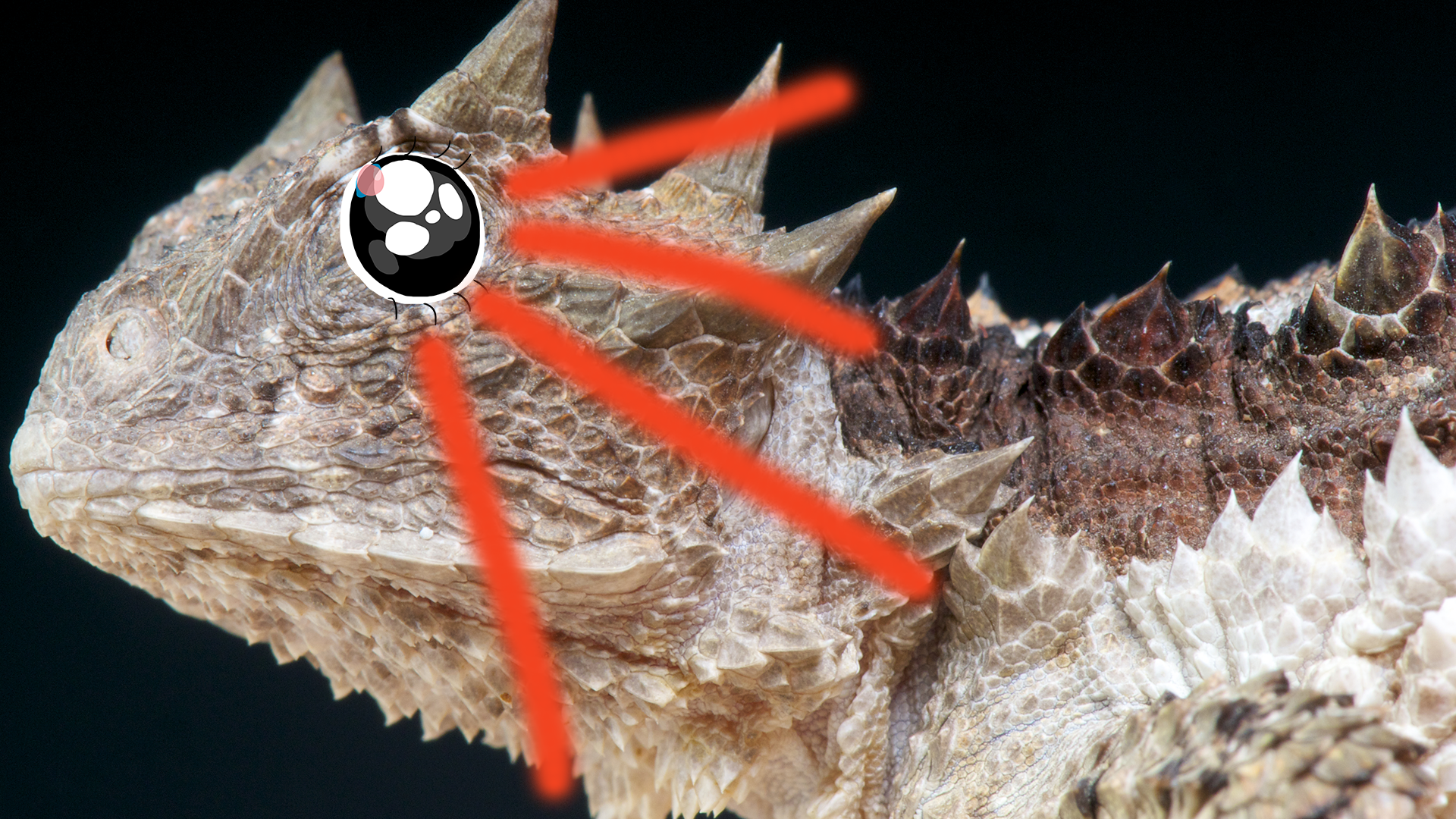
38. The Mummies of Guanajuato may have been buried alive
The mummies of Guanajuato, Mexico are famous for their horrible, dramatic facial expressions (think of your mums face when the dog poos on the carpet). These mummies date back to a 19th century Cholera epidemic, and there are over 100, though only about half of those are on display. Due to some of these horrible facial expressions, it’s thought that some of them may have been buried alive! This could be possible – cholera wasn’t widely understood at the time, and people may have been buried alive by accident, thinking they were dead. Scary!
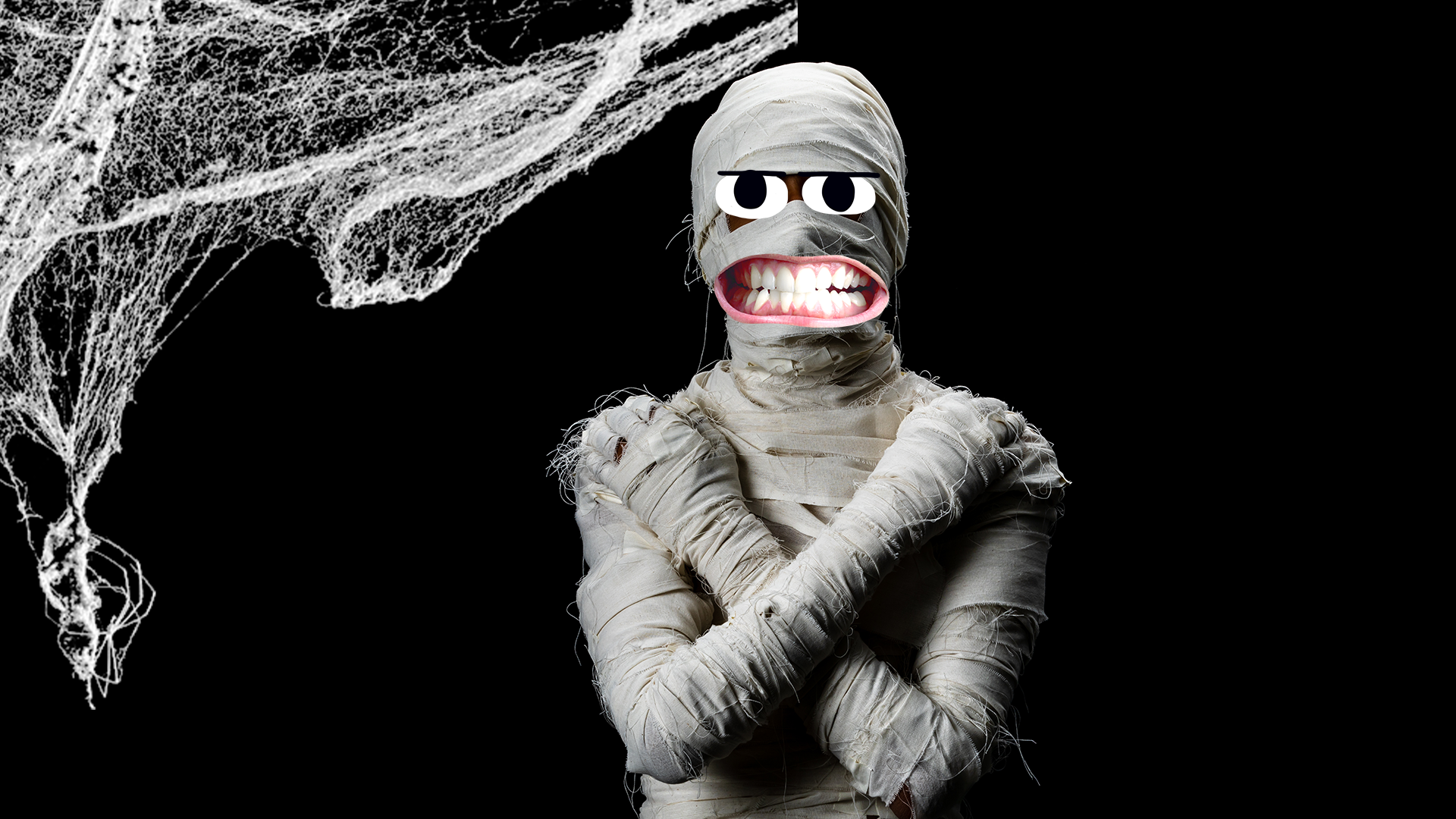
39. Loch Ness isn’t the only lake in the UK with a monster
The nearby Loch Morar is home to ‘Morag’, another lake monster who’s been sighted many times over the years. Some people think there may even be underground tunnels between the two lochs, and that Nessie and Morag are one and the same! There are loads of other lakes which may contain monsters in the UK, including Muc-sheilche, of Loch Maree, also in Scotland, and The Eachy of Bassenthwaite Lake in the Lake District, which is said to be a giant humanoid with a snake head! Yikes! Better not go for a dip round there.
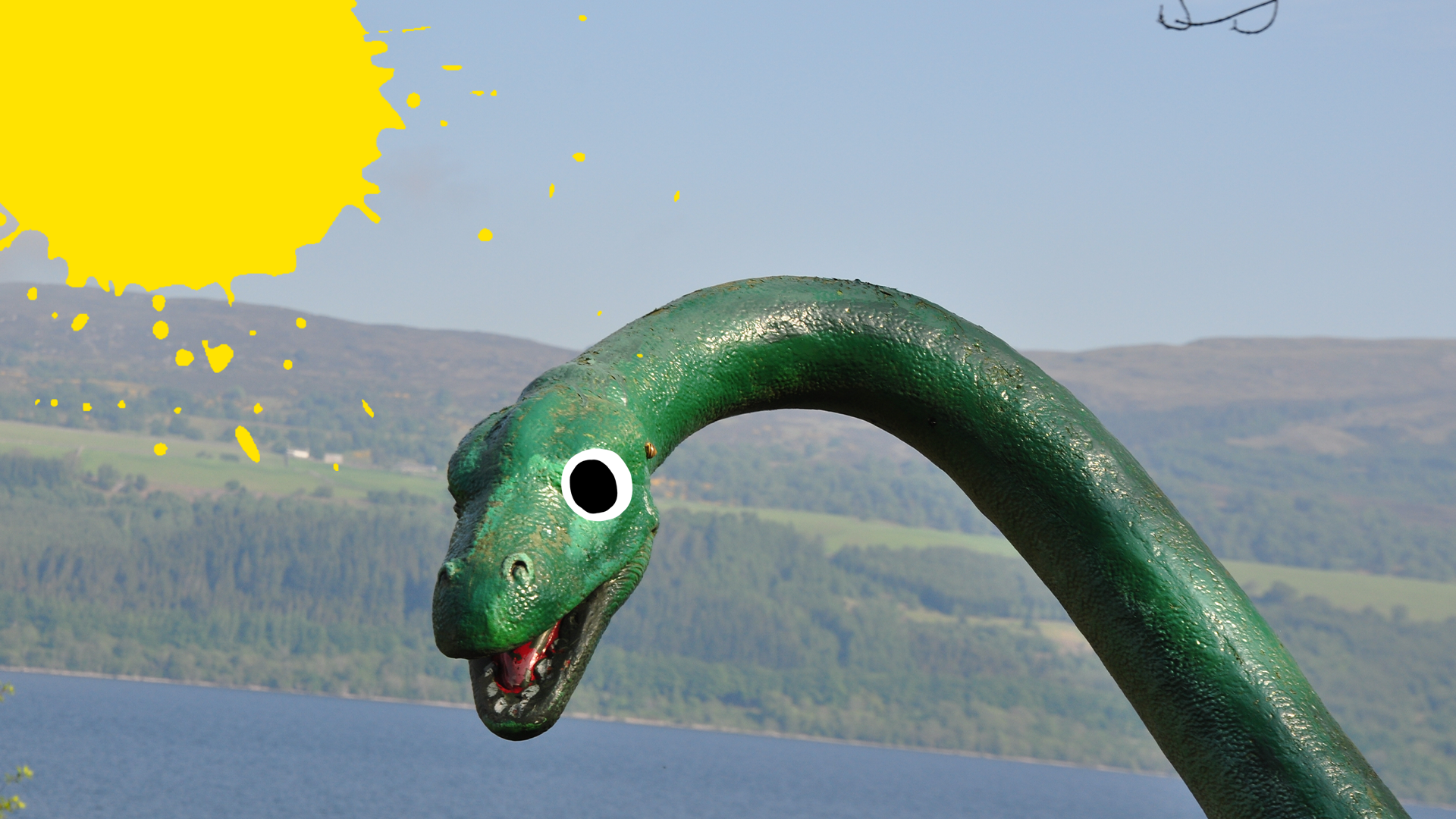
40. There was a vampire scare in America in the 19th century
The New England Vampire Panic occurred in New England, USA in the 19th century. States in New England, including Connecticut, Rhode Island and Vermont. These so called ‘vampires’ were actually suffering from tuberculosis, which sadly isn’t cured with garlic! Like the mummies of Guanajuato, tuberculosis wasn’t very well understood and often made the victim look like the walking dead. Bodies have been exhumed since then which bear the marks of being buried as vampires, including having their heads removed! The scariest thing of all is that this happened less than 200 hundred years ago!

41. Violet Jessop survived three boat disasters
Violet was a stewardess, which meant she worked on boats crossing the ocean. Violet was working on the HMS Titanic in 1912 when it sank, and was only put in one of the lifeboats after she’d helped passengers first. She was also on the RMS Olympic, the Titanic’s sister boat, in 1911, when it collided with another boat, though it didn’t sink . During WW1 she was a nurse on board the HMHS Britannic in 1916 which was also sunk! Violet had to jump into a lifeboat from the sinking ship, and hit her head while doing so. Violet lived through all three events and later wrote a book about it. Was Violet seriously lucky, or seriously unlucky?
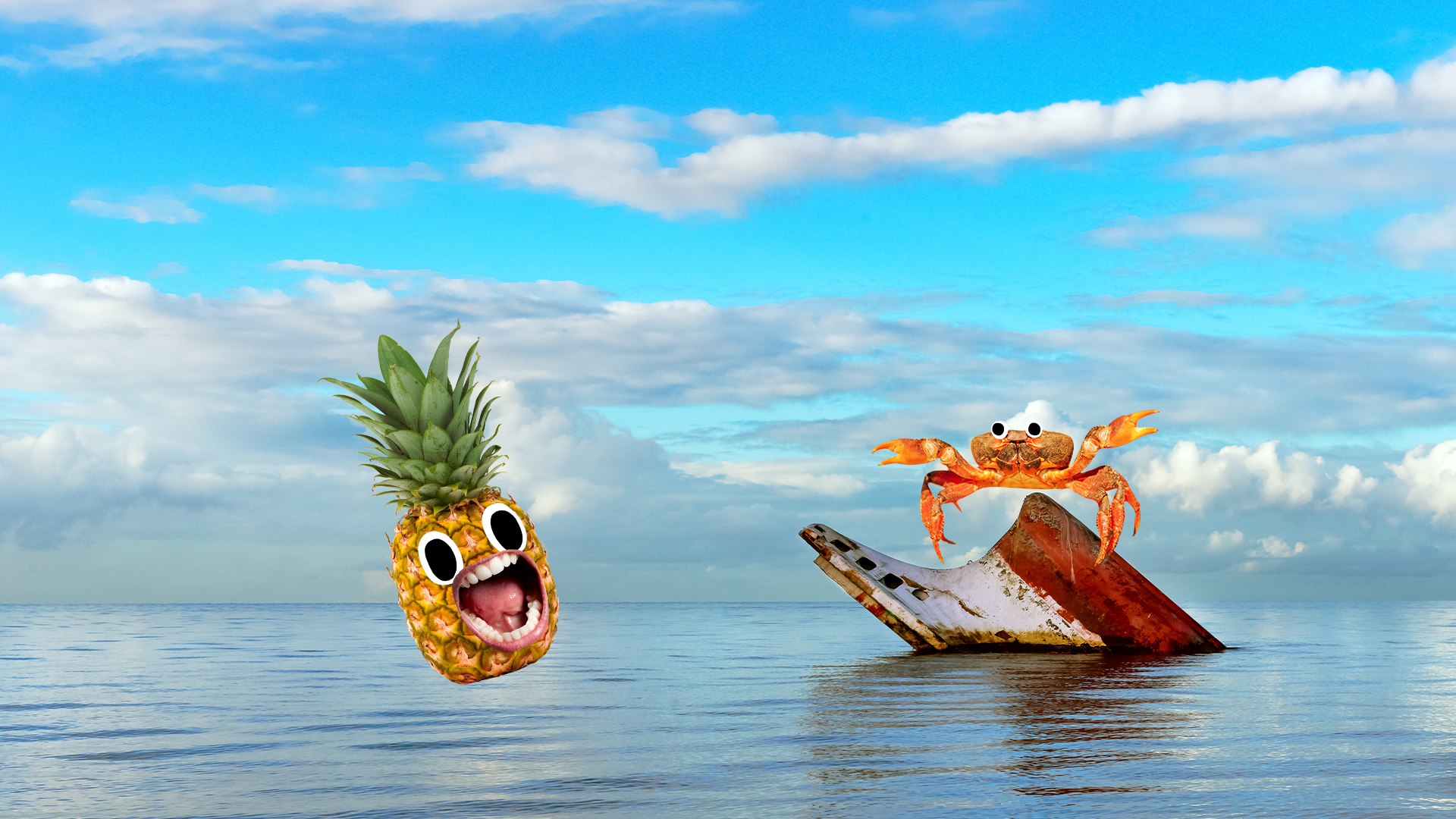
42. The Venus Flytrap is deadly!
Well, deadly if you’re an insect that is. The Venus Flytrap can be found throughout the Southern US states, and feeds mostly on flies and other insects, and its famous for being one of the few carnivorous species of plant. The Venus Flytrap works by luring flies in with a sticky nectar, then clamping closed on them and digesting them whole! They have special hairs which sense when an insect has landed and sets off the plant to snap shut. Some of the bigger Venus Flytraps can even eat tiny frogs! Eurgh!
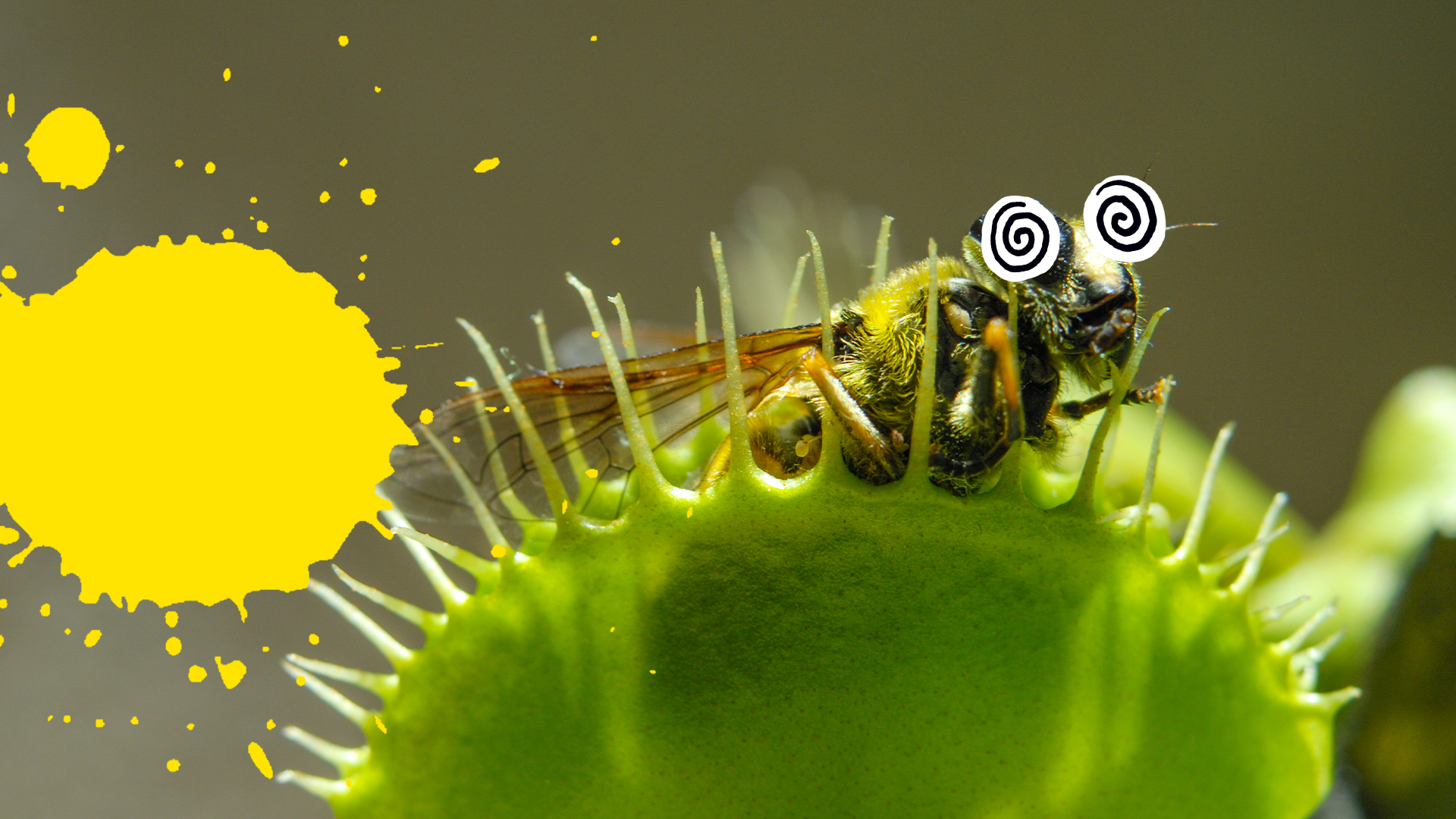
43. Dracula is based on a real person
The famous vampire is actually based on a historical figure, Vlad Tepes, or Vlad Dracula, who was a Romanian ruler in the 15th century who liked to, er, stick his enemies on spikes. Unsurprisingly, his nickname was Vlad the Impaler. He was apparently not a very nice man. The ‘Dracula’ in his original name means ‘ son of the dragon’ (Dracul being his dad’s nickname), and refers to his fearsome reputation. He doesn’t look much like our modern idea of a vampire though – he has a moustache and a big fancy hat. There are also no reports of him drinking any blood!
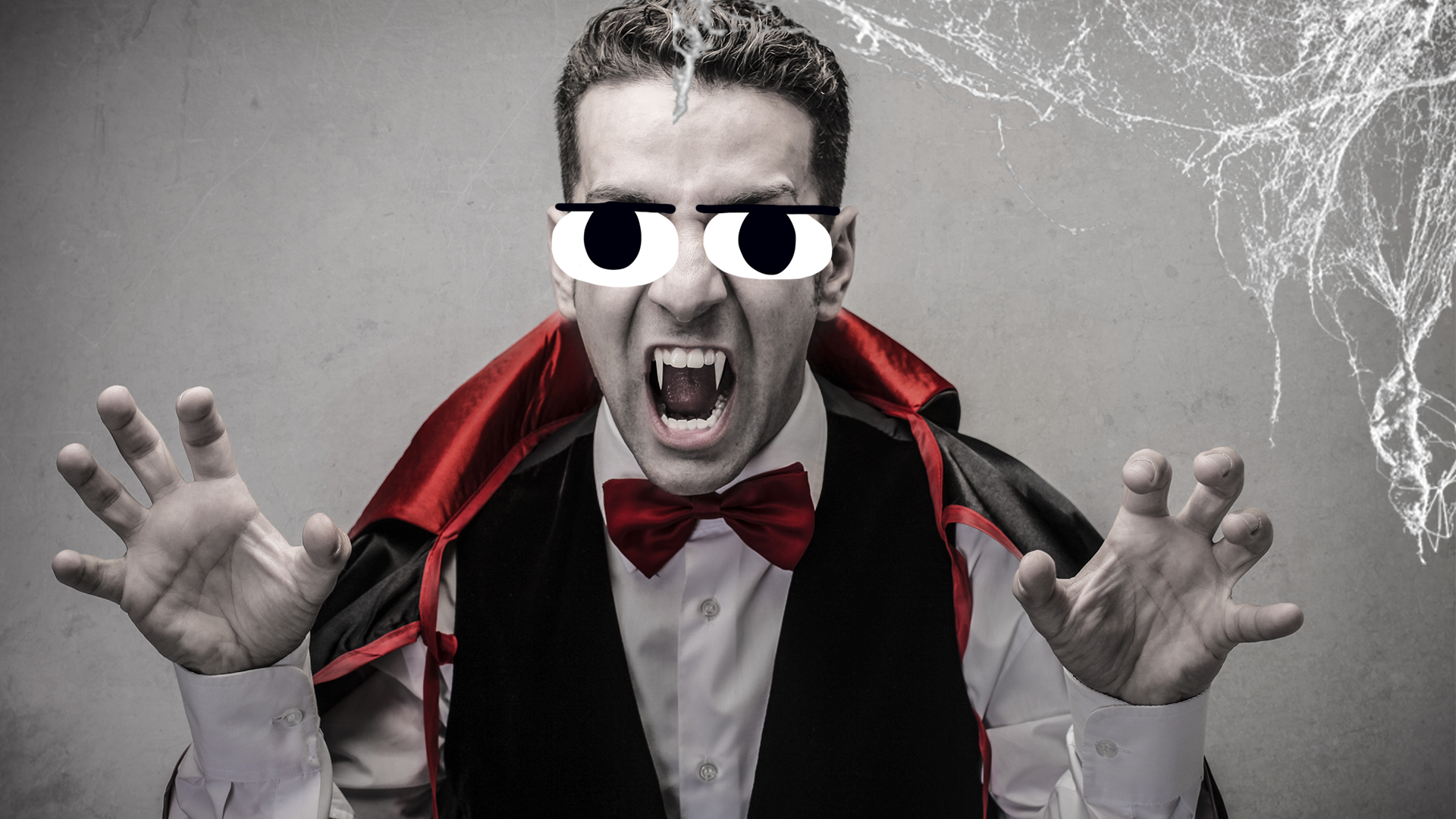
44. Honey Badgers are kind of terrifying
The name Honey Badger sounds lovely, until you hear about how vicious they are! Honey badgers are a type of mustelid (the family of mammals including badgers, weasels and otters) found in Africa and Asia. They are known to be very clever at getting round fences and traps, and their prey includes reptiles, rodents and scorpions! They can be so aggressive that they’ve been known to get into fights with snakes, lions and hyenas! As the name suggests, their favourite food is honey, but don’t try and cuddle them like they’re Winne the Pooh!

45. Your phone has more germs than a public loo!
TEN TIMES as many in some cases! Gross! We use our phones all day, so we touch them constantly, and anything on your hands can get onto your phone. That’s why it’s very very important to wash your hands after going to the toilet or doing anything else unhygienic! You should be cleaning your phone with anti-bacterial wipes regularly, and that goes for all your other tech too! If it makes you feel better, most things have at least SOME germs on them. Or does that make you feel worse? Anyway, give it a wipe, please.

46. There are tunnels full of skeletons underneath Paris
In 18th century Paris, the graveyards were getting full, which was leading to overcrowding and the spread of disease. The solution? Dig up all the old bones and store them in underground tunnels beneath the city. They’re called the catacombs and they house the bones of millions of people! The tunnels themselves date back much longer, to when they were used as underground quarries in medieval times. Many of the remains have been arranged in elaborate patterns and designs, and the tunnels stretch for over a kilometre! You can even visit them, if you really want to! On average, the catacombs get about half a million visitors every year!
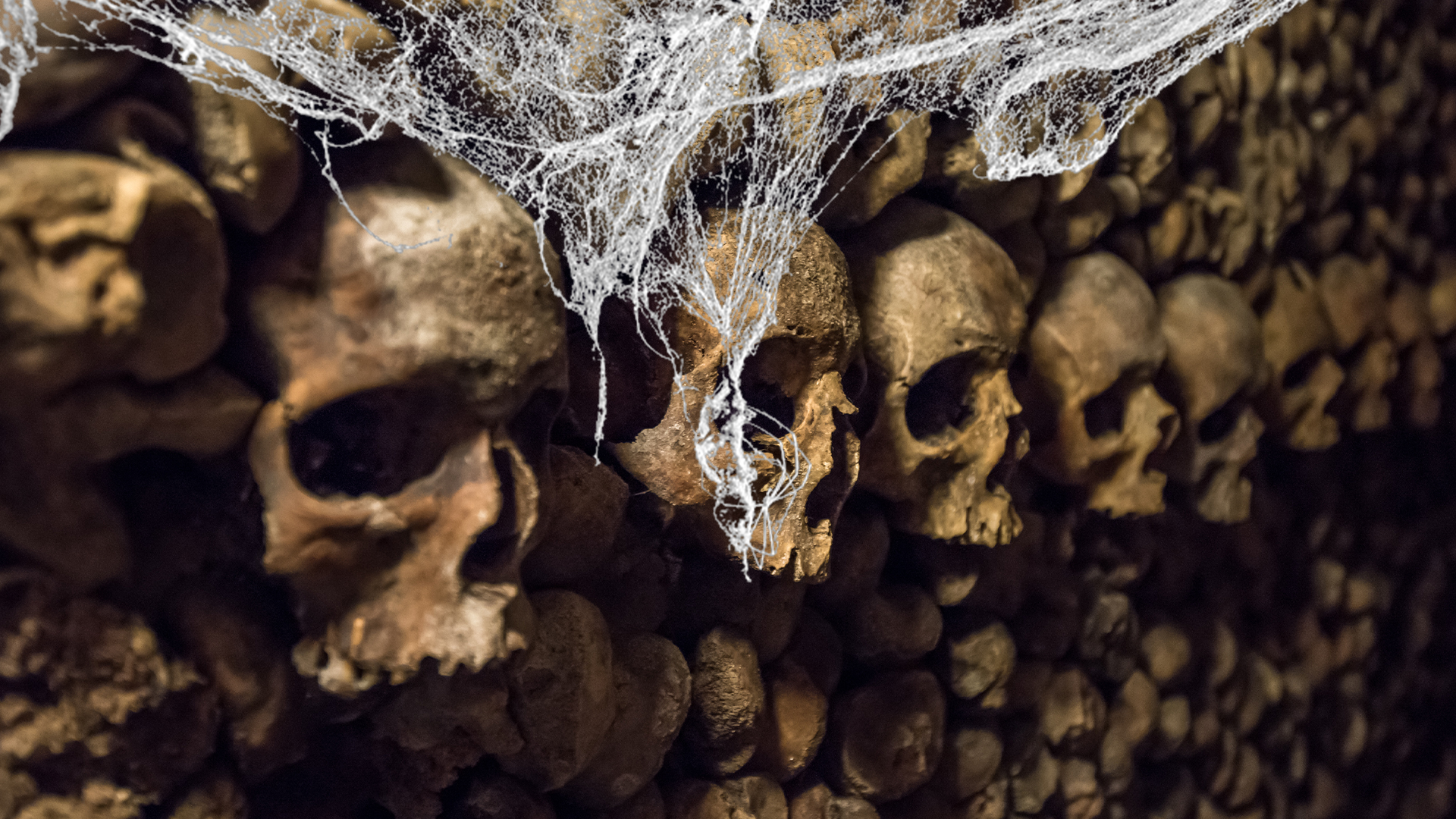
47. Hampton Court Palace is one of the most haunted places in the UK
Hampton court is another very spooky old Royal palace. Built in them 14th century and made larger over the years, the palace has been home to many royals, including Henry VIII, Queen Anne and King George II. Naturally, it’s stuffed with ghosts and spooky goings-on. Famously haunted areas include the kitchens, the chapels and even an area known as ‘The Haunted Gallery’. Ghosts include a grey lady, Queen Jane Seymour, and a mysterious man in robes who was caught on CCTV in 2003! The video shows a door blowing open and then a figure in what appears to be a robe appearing and closing it. The staff said no one dressed like this was on site that day. What do you think it was? Authentic spook or historical hoax?
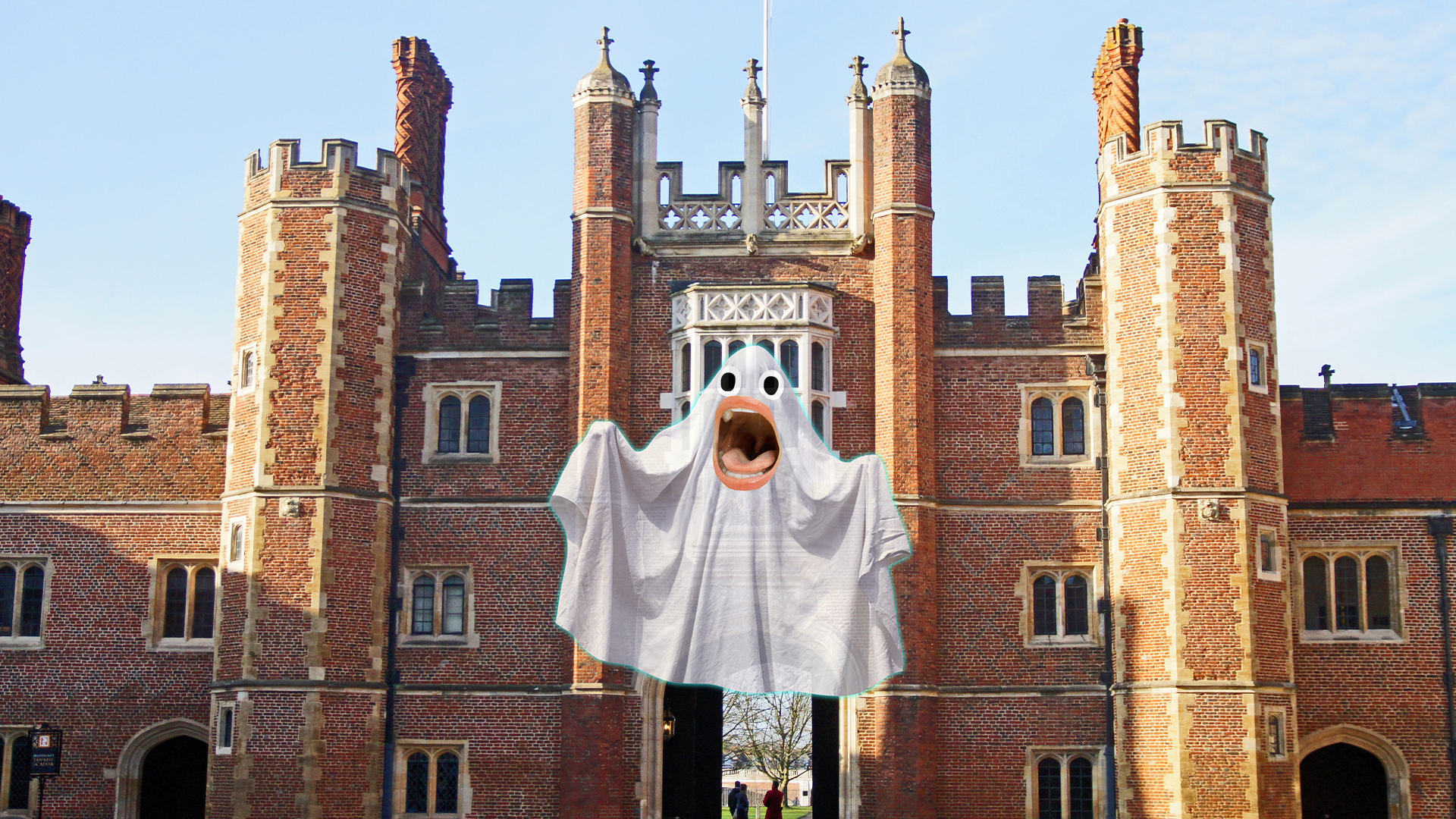
48. People used to put cat mummies in their walls
Yup, you read that right! In parts of Europe including the UK, it was custom to place the body of a dead cat into the walls of a new house for luck. Mummified cat remains have been found in several old buildings, including pubs. Cats have been seen as lucky or superstitious by lots of different cultures for thousands of years, including the ancient Egyptians, who considered them very special. Other items found inside old walls include shoes and magical carvings. We don’t really know what’s so lucky about a dead cat…you save money on cat food, we suppose!
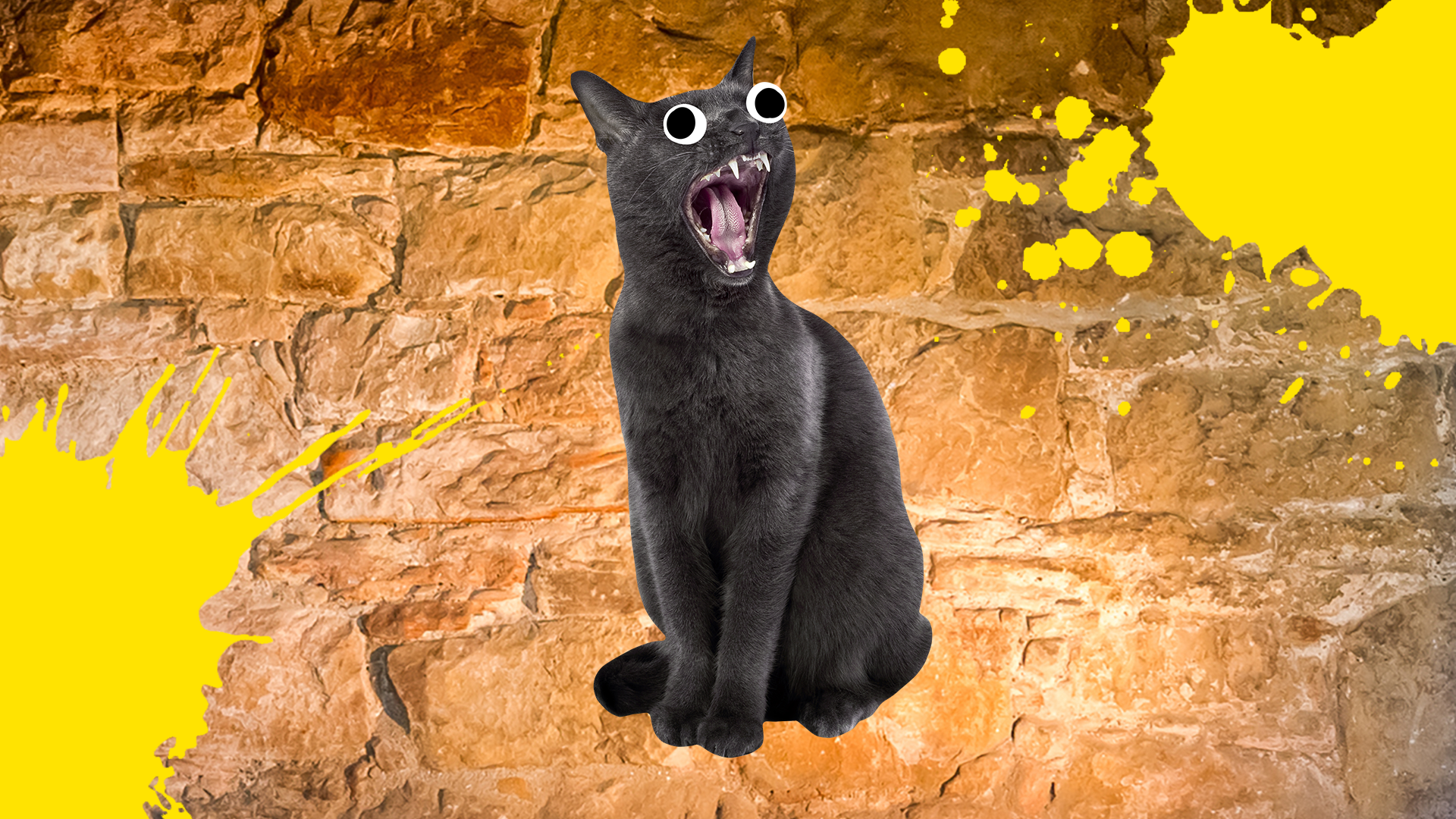
49. The Witchcraft act of 1735 was last used in 1944
Helen Duncan was a woman who was accused of spying during WW2 because she somehow knew supposed secrets about the war. She was prosecuted under an act from the 18th century which made it illegal to pretend to use witchcraft to find out information. Helen actually claimed to be a medium, or spiritualist, and not a witch. Spiritualists are people who claim to be able to communicate with the dead, and this was particular popular during WW2 when so many lives where lost. The government probably knew Helen wasn’t really a witch (in fact, Winston Churchill apparently thought the whole thing was ridiculous) but they were scared about secrets leaking and spies. Helen was jailed for 9 months, though the Witchcraft Act was repealed afterwards.
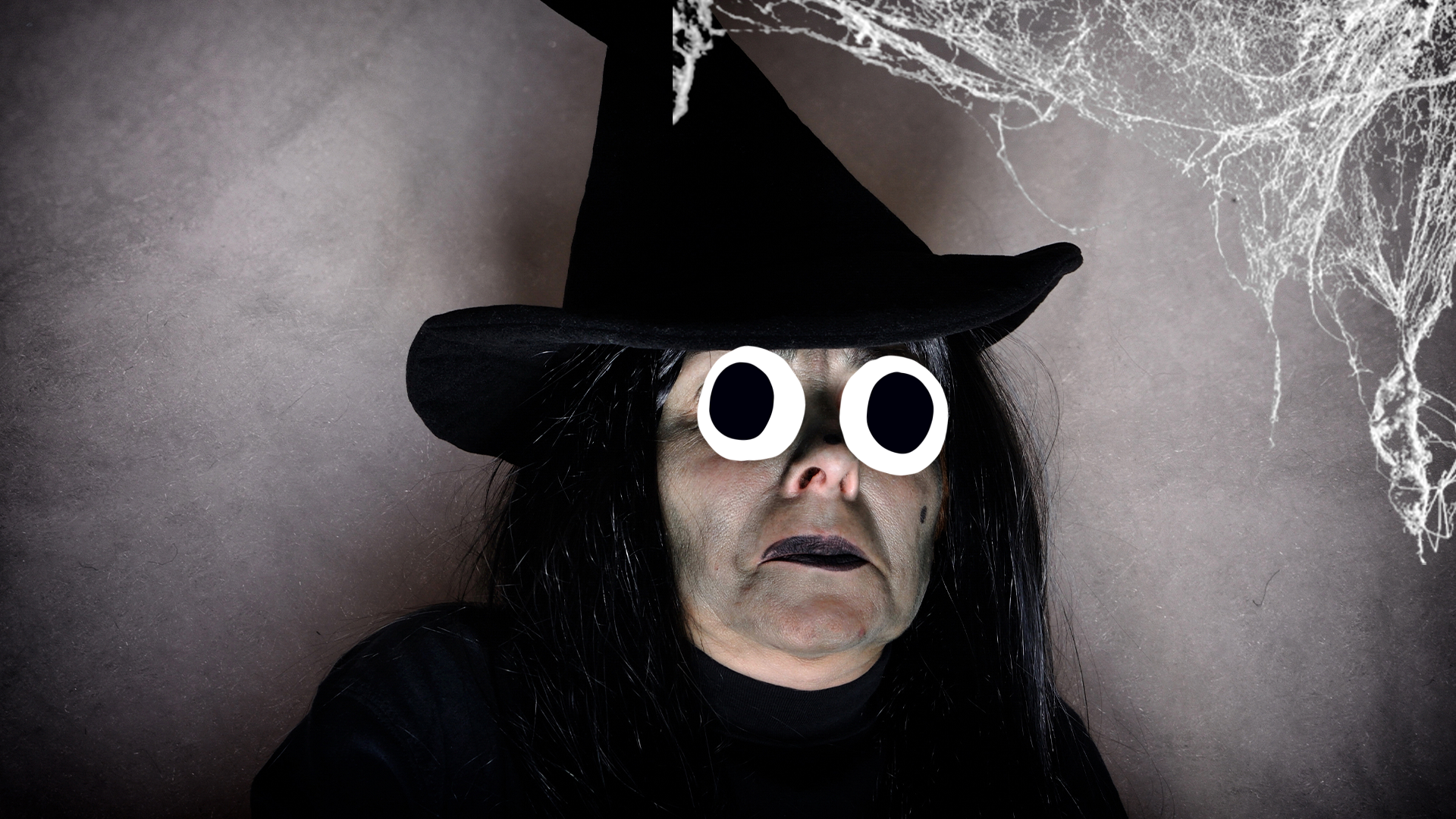
50. Cockroaches can live without their heads for weeks
Yes, these resilient bugs have been known to survive weeks without their heads! Cockroaches are notoriously hardy bugs. The cockroach has a very different nervous system to us – they don’t need their brains to do most of the work, so if they lose their heads, their nervous systems will keep working and keep the cockroach moving. They also won’t die from blood loss as the blood clots at the neck. Sadly the cockroach will die eventually when it needs food and water. Clever…but gross.
